Vice President, Cities & Public Services, Dassault Systèmes. He started his career as a research fellow at the French Institute of International Relations (IFRI), focusing on European security and transatlantic relations. He has worked for EADS-AIRBUS as senior manager in charge of international development. In 2005, he was appointed diplomatic advisor to the French Minister of Transport and Infrastructure, D. Perben. From 2007 to 2015 he worked for Alstom group, in the energy and rail transportation sector, in various capacities. In 2016, he joined the regional council of Paris Region as deputy director general and special advisor to the President, in charge of European affairs, international cooperation and tourism, until September 2019.
Tatiana Kastouéva-Jean
Research Fellow and Director of Russia/NIS Center of Ifri since January 2014. Before joining Ifri in 2005, she taught International Relations for the French-Russian Master at MGIMO University (Moscow State Institute of International Relations). At the beginning of her work at Ifri, she developed a rich expertise on issues linked to youth, higher education and innovation in Russia: she is the author of the book Les universités russes sont-elles compétitives ?, CNRS Editions, 2013. She currently heads the trilingual electronic collection Russie.Nei.Visions. She holds a degree from the State University of Ekaterinbourg, a Franco-Russian Master in International Relations from the University of Sciences Po and MGIMO University, and from the University of Marne-la-Vallée in France. In 2020, she published La Russie de Poutine en 100 questions (Paris, Tallandier).
Jean-Pierre Cabestan
Senior Researcher Emeritus at the French National Centre for Scientific Research (Centre national de la recherche scientifique), attached to the French Research Institute on East Asia (IFRAE) of the National Institute of Oriental Languages and Civilisations (INALCO). He is also Professor Emeritus at Hong Kong Baptist University. Prior to September 2021, he was Chair Professor of Political Science, Department of Government and International Studies, Hong Kong Baptist University. He was Head of the Department from 2007 to 2018. He is also Associate Researcher at the Asia Centre, Paris and at the French Centre for Research on Contemporary China in Hong Kong. Named Officer of the Palmes Académiques in 2018 and Knight of the Order of Merit in 2022, he has been a corresponding member of the Académie des sciences d’outre-mer (ASOM) since 2019. His main research topics include political, institutional and legal reforms in People’s China, Chinese foreign and security policy, China-Taiwan relations, the Taiwanese political system and China-Africa relations. His most recent publications include China Tomorrow : Democracy or Dictatorship? (translated by N. Jayaram; Lanham, MD, Rowman & Littlefield, 2019), and Facing China: The Prospect for War and Peace (translated by N. Jayaram; Lanham, MD; Rowman & Littlefield, 2023).
Josep Borrell Fontelles
Josep Borrell Fontelles is the High Representative of the European Union and Vice-President of the European Commission. He was a Minister of Public Works and Environment from 1991 to 1996, member of the European Parliament from 2004 to 2009 and its President from 2004 to 2007. Borrell became President of the European University Institute in 2010 and Jean Monnet Chair at the Institute of International Studies at Complutense University of Madrid. In 2018, he was appointed as Foreign Minister for the Spanish government and in 2019 High Representative of the European Union for Foreign Affairs and Security Policy.
Sweden’s Centrists Prevail Even as Far Right Has Its Best Showing Ever
By Christina Anderson and Steven Erlanger, The New York Times
STOCKHOLM — Sweden looked set for a period of political confusion after election results on Sunday put a center-right bloc and the governing center-left coalition neck and neck, while a far-right, anti-immigration party came in third — winning a higher percentage of the vote than ever before, but achieving less of a breakthrough than polls had suggested.
With more than 99 percent of ballots counted, the national election commission reported that the governing center-left Social Democrats had 28.4 percent of the vote, making it the largest single vote-getter, but handing the party its worst showing in decades.
The center-right Moderate party was next at 19.8 percent, while the far-right Sweden Democrats were running third, with 17.6 percent, up from 12.9 percent in 2014 but a less successful showing than many Swedes had feared. Some polls had predicted that the Sweden Democrats would come in second, with more than 20 percent of the vote.
The red-green bloc of center-left, leftist and environmental parties, led by the Social Democrats, had 40.6 percent of the vote. The center-right alliance, led by the Moderates, was just behind with 40.3 percent. The results mean neither bloc can command a majority in Parliament, and both have rejected the idea of any deal with the Sweden Democrats.
The campaign was unusually polarizing in a country known for seeking political consensus. The main issues were also the most contentious: immigration, crime, the welfare state and, after a summer of forest fires, the environment.
For some voters, the fierce debates were a welcome change.
“In Sweden we have been too afraid to discuss the issues,” said Anders Nilsson, 54, an I.T. engineer who voted for the Center party in Botkyrka, a diverse suburb south of Stockholm. “Now we dare to discuss tough questions.”
This election has been one of the most closely watched in Sweden’s recent history, with a focus on how the Sweden Democrats would perform given the rise of anti-immigration populist parties in countries like Germany, Italy and Austria.
“The world’s eyes are on Sweden and the path it takes,” Annie Loof, the head of the Center Party, said in a debate before the vote.
The Social Democrat prime minister, Stefan Lofven, who runs a minority government of the center-left, had warned voters on Saturday not to cast their ballots for what he called a “racist” party.
“This election is a referendum about our welfare,” he said. “It’s also about decency, about a decent democracy and not letting the Sweden Democrats, an extremist party, a racist party, get any influence in the government.”

Jimmie Akesson, the leader of the Sweden Democrats, told supporters on Saturday that the current government had “prioritized, during these four years, asylum-seekers,” listing failures to do more for health care, housing and pensioners. “Sweden needs breathing space,” he said. “We need tight, responsible immigration policies.”
The results on Sunday followed another recent European election pattern: the shrinking of mainstream parties of the center-left and the center-right as they lose votes to more extreme parties on both sides of the political spectrum, as well as to environmentalist parties.
In Sweden, this shift has raised questions about whether the main parties will keep their vows to have no dealings with the Sweden Democrats, or whether they will have to reach some understanding with the party, especially on crucial budget votes.
The main parties may try to negotiate some sort of grand coalition, but that would be unusual in Sweden, where minority governments are fairly common.
“This is a new situation for Sweden,” said Soren Holmberg, a political scientist who heads the SOM Institute, an independent research group at the University of Gothenburg. “What is pretty clear is that there won’t be a majority on either side, so it means we have to have a lot of negotiation between the blocs.”
About 7.5 million registered voters chose from almost 6,300 candidates for a four-year term in the 349-seat Parliament.
Arian Vassili, a 23-year-old engineering student who voted Sunday in Botkyrka, said he supported the Social Democrats. “This is an incredibly important election,” he said. “This is an election about values, how you view people, your fellow human beings and whether we are going to take care of each other.”
Maria Enberg, 42, a cook who lives in Botkyrka, said she had voted for the Center party. “The Sweden Democrats have become so big, and I really wanted to vote against them. I don’t want any racist party governing in Sweden.”
The Sweden Democrats’ rise began in 2010, when the party crossed the 4 percent threshold for Parliament seats, getting 5.7 percent of the vote. In 2014, its vote share rose to 12.9 percent, making it Sweden’s third-largest party.
The Sweden Democrats have greatly benefited since the migration wave of 2015, when 163,000 asylum seekers came to Sweden, about 1.6 percent of the population.
Under Mr. Akesson’s leadership, the party has tried to soften its image. It now uses for the party logo a floppy flower in Sweden’s colors of blue and yellow instead of a flaming torch, and the party insists that it will not tolerate racism. But it campaigned on keeping “Sweden Swedish,” cracking down on crime and questioning whether immigrants and Islam will alter the country’s identity.
As in Germany, stricter border controls have been introduced in Sweden, and the numbers of new immigrants has fallen steeply, to about 23,000 this year.
Image

But the political damage had been done, and despite a thriving economy and generally low unemployment, the Sweden Democrats argued that immigration should stop and that resources should go to refurbishing Sweden’s famous welfare state, which is strained by an aging population and the challenge of taking on migrants.
For those born in Sweden, the unemployment rate was 4.4. percent in 2017; for migrants, the number was 15.1 percent, according to government statistics.
During the campaign, the right-wing party spoke directly about traditionally taboo subjects like identity, Islam, integration and crime, winning supporters who felt the traditional parties had been reluctant to touch such sensitive issues. The party, along with the Left party on the other extreme, has benefited from a general sense of discontent and loss of confidence in the political system.
Li Bennich-Björkman, a political scientist at Uppsala University, said it was “sort of shocking” that the Sweden Democrats could come this far, but she noted that the party, which has disavowed its roots in the white supremacist movement, had transformed.
“I would say that the major part of their electorate are not racist and fascist,” Ms. Bennich-Björkman said. “They have managed very skillfully to transform themselves into a variant of the Social Democratic party, just with more nationalist ambitions,” she said.
The Social Democrats, who have dominated the country for a century, built Sweden’s welfare state. But their support has declined from 45 percent in 1994 to just over 28 percent on Sunday. The Left Party had 7.9 percent of the vote, and the Green Party 4.4 percent.
The Moderate party, led by Ulf Kristersson, leads the center-right bloc. He was chosen in October 2017 to head the party when his predecessor, Anna Kinberg Batra, resigned after suggesting that it might be possible to work with the Sweden Democrats. In its alliance, the Center Party won 8.6 percent of the vote, the Christian Democrats 6.4 percent and the Liberals 5.5 percent.
On Sunday night, Mr. Kristersson called on the prime minister to resign. “This government has run its course,” he told a party rally.
With the two blocs so close to each other, negotiations over forming a government are expected to be drawn out. “Usually we are quick in forming a new government,” said Mr. Holmberg, the political scientist. “This time it could drag on for weeks or months.”
Both centrist parties have moved to the right under the pressure of the Sweden Democrats and have promised tougher policies on immigration, the integration of refugees and crime.
Daniel Suhonen, the head of Katalys, a trade union research group, said he saw “very sad” parallels in the United States for the Sweden Democrats’ rise.
“They had a clear answer, like Trump,” he said at a Social Democrats event. “They said all the problems in Sweden are created by an elite that is corrupt and ruined the country with immigration, and you can see that in your bad pension, the lack of affordable housing for your adult children. They said you can solve it if you stop immigration.”
Christina Anderson reported from Stockholm and Steven Erlanger from Brussels.
Les élites doivent écouter les demandes d’identité, de souveraineté et de sécurité des peuples
07/09/2018
JACQUES HUBERT-RODIER | DOMINIQUE SEUX | VIRGINIE ROBERT, Les Echos
En cette fin d’été 2018, le monde vous paraît-il plus dangereux, par exemple, qu’il y a cinq ans ?
Le monde est dangereux sur certains plans et dans certaines régions. Mais il n’y a pas de risque d’enchaînements automatiques, et nous ne sommes pas à la veille d’un affrontement général. Ce sont plutôt nos illusions – occidentales, européennes ou françaises – sur la « communauté internationale » qui s’évanouissent les unes après les autres. A cet égard, Trump est autant un révélateur, une cause, qu’un facteur aggravant. Le plus dangereux c’est le compte à rebours écologique qui n’est pas assez pris au sérieux. Pour le reste, en géopolitique : mer agitée à très agitée partout.
La demande de frontières formulée par les peuples préfigure-t-elle un mouvement de démondialisation ?
Les élites sont bien obligées d’admettre que les peuples occidentaux, classes populaires puis classes moyennes, rejettent une mondialisation trop massive et trop perturbatrice et l’immigration de masse. Mais cela ne veut pas dire pour autant que le monde va se fermer, se « démondialiser ». Personne ne va renoncer à son portable. Je vois plutôt cela, après des excès, comme un balancier qui va se replacer au bon endroit. L’impact social, humain, culturel et identitaire de la baisse des droits de douane et de l’ouverture des marchés et des frontières a été très sous-estimé, c’est donc une correction. Il ne faut pas se faire peur : le monde va rester ouvert, avec plus de régulation, nationale ou internationale, sur les mouvements de personnes.
Que dites-vous à ces élites mondialisatrices, selon votre expression ?
Je n’ai pas grand-chose à dire de plus aux entreprises et à leurs dirigeants, sauf d’accélérer « l’écologisation ». Elles font leur job. En revanche, je dis aux responsables politiques et à tous ceux qui ont accès à la parole publique, qu’il faut entendre les demandes d’identité, de souveraineté et de sécurité des peuples, au lieu de s’en indigner, les canaliser, y répondre.
Quand on voit la façon dont fonctionnent les relations internationales aujourd’hui, notamment avec Donald Trump, le multilatéralisme est-il vraiment mort ?
Il est un idéal pour nous et une pratique en Europe, mais dans le monde d’avant Trump la coopération internationale n’était pas la règle ! Les Américains, y compris Bill Clinton, ont souvent habillé leur imperium derrière une apparence de concertation. Mais au moins elle était là. Le fait que Donald Trump casse ces illusions peut être dévastateur dans la mesure où il fera des émules.
Trump pèse-t-il vraiment sur un sujet comme le réchauffement climatique ?
Il est très nuisible mais il ne peut pas empêcher les Etats-Unis, avec tous leurs chercheurs, leurs villes, leurs entreprises, d’avancer dans la transition écologique. Il met seulement l’administration fédérale hors jeu, pour un temps. De même, s’il y avait une avancée de la coopération internationale pour préserver la biodiversité, les forêts ou les océans, il ne pourrait pas l’empêcher complètement. Mais c’est un handicap.
C’est bien différent sur l’Iran où, grâce à l’omniprésence du dollar, il peut imposer aux entreprises du monde entier un blocus pour provoquer une guerre civile et la chute du régime, comme le veulent Netanyahu et les Saoudiens.
Peut-on encore parler d’hyperpuissance à propos des Etats-Unis ?
A nouveau, oui, et peut-être plus encore qu’avant. J’ai parlé d’hyperpuissance en 1997 parce que le terme classique de superpuissance faisait trop « guerre froide » et qu’il me semblait que c’était la plus grande puissance de tous les temps. Après le 11 Septembre, qui a montré une certaine vulnérabilité américaine, j’ai moins employé ce terme, qui a eu sa vie propre. Mais les Américains conservent des éléments de puissance incomparables : le budget militaire, les Gafa, leur pouvoir judiciaire extraterritorial et abusif auquel nul n’a eu le courage de s’opposer depuis des décennies. L’hyperpuissance du président Clinton était rayonnante, assez séduisante, même si elle était arrogante. Elle associait bien les intérêts américains et une idée générale du monde, comme sous Roosevelt, Truman ou Kennedy. Aujourd’hui, ce n’est plus le cas. Vous avez de nouveau une hyperpuissance, cette fois-ci brutale, agressivement unilatéraliste et, qui plus est, révisionniste de l’ordre « libéral » américain, ce qui est un paradoxe. Emmanuel Macron ne prend pas Trump de front, mais sur chaque point il ne se laisse pas impressionner, tout en assumant qu’il faut maintenir un lien. Il a raison. Mais la question se pose : que faire malgré Trump ? Et que faire contre lui ?
La Chine n’est-elle pas la limite à l’hyperpuissance américaine ?
On verra. Potentiellement, c’est une gigantesque puissance et il n’y a pas de limite apparente à son ascension. Mais dans ma définition de l’hyperpuissance, il y avait aussi la séduction, l’attractivité du mode de vie, cent ans de Hollywood, les universités américaines, avant qu’elles ne soient minées par le politiquement correct, le rêve américain. Les Chinois n’ont pas ça du tout ou pas encore ! Leur réussite est spectaculaire mais leur système n’est pas séduisant. Encore que… En tout cas, pas pour les démocraties établies. Il y a une interrogation sur leur objectif. Les spécialistes de la Chine disent que, méprisant le monde extérieur, ils ne chercheront pas à être prosélytes et ne voudront pas nous convertir à leurs idées, pas de valeurs « chinoises universelles » ! Mais d’un autre côté vous voyez cette puissance économique, multipliée par le nombre, qui permet de neutraliser ou d’influencer déjà 40, 50, 60 voire 70 pays ! De Deng Xiaoping à Xi Jinping, il y a eu des ingénieurs de la décision politique, travaillant dans le temps long, et qui ont bénéficié d’une vraie stabilité.
Depuis les Lumières, les Occidentaux modernes, progressistes, ouverts pensaient être à l’avant-garde de l’humanité. Et voilà que la Chine remet en cause ce rôle, notre supériorité, nos idées ? C’est impensable pour nous ! Il faut pourtant nous préparer à un vaste compromis sur les règles mondiales. Il est urgent de trier dans nos fondamentaux et de voir ce qui est fondamental, et ce qui peut relever d’un compromis avant que les Chinois ne nous mettent devant le fait accompli.
Vous ne voyez pas la Chine comme une puissance expansionniste ?
Pas autant que nous le fûmes, d’Alexandre le Grand à Hitler en passant par Napoléon. La Chine fonctionne plutôt comme un commissariat au plan, qui organiserait, en s’assurant de ses apprivoisements et qui les sécurise, une politique de puissance (route de la soie, etc.) à l’instar de celle de l’Empire britannique et de ses bases. Les Chinois ne sont sans doute pas animés par une volonté hégémoniste allant au-delà de ce qui a été l’empire des Qing. Elle veut surtout maintenir son unité et son intégrité rétablies. Je n’exclus pas complètement un affrontement, un jour, entre les Etats-Unis et la Chine sur la libre circulation en haute mer. Mais si, face à cette gigantesque affirmation chinoise, certaines puissances, comme le Japon, Taïwan, la Corée, l’Inde, l’Australie, l’Europe, les Etats-Unis, s’organisent pour ne pas agir en ordre dispersé afin de faire respecter des règles de base, les Chinois feront attention. Il faudrait pour cela dans les démocraties des dirigeants que les systèmes politiques laisseraient mettre en oeuvre de vraies stratégies !
L’axe indo-pacifique est-il une bonne réponse ?
Oui, si on lui donne un contenu crédible avec les pays concernés. Mais le comportement américain pousse plutôt l’Inde vers la Chine.
Que pensez-vous de la décision du président américain d’imposer des sanctions contre l’Iran mais aussi contre les entreprises faisant du commerce avec ce pays ?
C’est totalement illégal et, pour ceux qui croient encore un peu au droit international, scandaleux. De plus, irresponsable. Pour l’Europe, la conclusion devrait être simple : tout faire pour ne plus dépendre des Etats-Unis, devenus une puissance erratique, même si nous préférons rester ses alliés. Cela est trop dangereux. Il faut reconstruire notre autonomie monétaire (euro, SWIFT).
L’Europe peut-elle devenir une puissance ?
Si l’on met bout à bout le potentiel des Européens sur tous les plans, il est considérable. Emmanuel Macron a fait d’importantes propositions pour une Europe plus forte, mais il faut une volonté explicite et partagée pour les mettre en oeuvre. Créer des mécanismes, des coopérations, des institutions, ne suffit pas. Les Européens ont été autrefois l’incarnation même du jeu des puissances. Après 1945, la construction européenne a intelligemment utilisé la paix imposée par les Soviétiques et les Américains. C’était formidable : il y avait le parapluie américain et le plan Marshall. Mais c’est fini. Pourtant l’idée que l’Europe soit obligée de devenir une puissance dans le monde chaotique d’aujourd’hui terrorise la majorité des Européens…
Est-ce que cela peut changer ?
Oui, si on parvient à sortir les Européens du déni et de leur coma stratégique, en leur démontrant que si l’Europe ne devient pas une puissance (raisonnable et pacifique), avec une autonomie stratégique, elle restera… impuissante, et donc dépendante.
La zone euro n’est-elle pas le bon espace pour faire repartir l’Europe ?
Il faut la renforcer mais, politiquement, cela ne suffit pas. Que l’euro marche bien, et ne soit pas vulnérable à une autre crise monétaire, est un objectif rationnel, important en soi. Mais cela ne répond pas aux attentes des peuples. On ne passe pas directement d’une zone euro, même perfectionnée, à une relance de l’Europe. Relance de quoi d’ailleurs ? Si cela veut dire plus de construction européenne, avec de plus en plus d’intégration comme le veulent les élites intégrationnistes, les peuples ne suivront pas. Sauf si les dirigeants européens arrivent à se mettre tous d’accord sur la maîtrise des flux migratoires, ce qui rendrait les opinions publiques européennes plus réceptives à d’autres progrès en Europe.
Que faut-il faire face à la crise migratoire ?
D’abord sauvegarder le vrai droit d’asile, sans le dévoyer, pour les personnes réellement en danger et, d’autre part, cogérer les flux migratoires économiques avec les pays de départ et de transit, en fonction de nos capacités d’insertion et de nos besoins économiques. On peut imaginer des réunions annuelles avec les pays européens de l’espace Schengen, les pays de départ et ceux de transit, avec une multitude d’accords sur mesure.
Il faut casser le vocabulaire qui est employé à dessein pour tout confondre : demandeurs d’asile et migrants. L’extrême gauche joue la carte migratoire, et de l’islamo-gauchisme. L’extrême droite veut pouvoir dénoncer une invasion générale. Et les ONG ne veulent pas non plus distinguer et parlent de réfugiés à propos de migrants économiques.
Certains pays mettent en avant la montée de l’islamisme pour expliquer la peur des musulmans ? Est-ce que cela peut évoluer ?
Cela diminuera si l’islamisme recule ! Pour le moment ce n’est pas le cas. Il suffit de parler avec des dirigeants musulmans qui sont en lutte chez eux, en première ligne, contre l’islamisme. Je connais beaucoup de musulmans marocains, algériens, tunisiens, mauritaniens, égyptiens, etc. qui disent : « vous êtes trop naïfs. Le voile, c’est organisé, c’est parfois payé. Il faut juste l’interdire. » Ils osent dire que l’islamisme, qui s’est emparé du sunnisme, est un nazisme. Pour moi, il faut une alliance, une coalition mondiale des musulmans modérés et des démocrates.
La France a-t-elle échoué pour trouver une solution à la guerre civile en Syrie ?
Sur la Syrie, les Occidentaux, et nous en particulier, ont échoué. Ses postulats moraux étaient honorables, mais la politique française des dernières années nous a mis hors jeu. En fait, nous n’avons plus de levier, sauf à nous entendre avec les Russes.
Que faire face à la Russie ?
Depuis vingt-cinq ans, les torts ont été partagés entre Occidentaux et Russes. Je ne dis pas que, depuis la fin de l’Union soviétique, elle a été mal traitée, mais elle l’a été de façon idiote. Reconduire sans cesse des sanctions ou haïr Poutine ne constitue pas une stratégie. Il faut en sortir par le haut. Emmanuel Macron a raison de dire qu’il faut réarrimer la Russie à l’Europe, et d’en refaire un partenaire stratégique, même si cela n’est pas facile.
Sweden Was Long Seen as a ‘Moral Superpower.’ That May Be Changing
Steven Erlanger, The New York Times
STOCKHOLM — In a civic center in Rinkeby, a heavily immigrant district of northwest Stockholm, several hundred people gathered recently for a forum on Sweden’s coming election and the future of the country.
The conversation, about the nature of Sweden’s democracy and the importance of voting, was sophisticated and passionate. But it was frustrating for one participant, Ahmed Ali, a Somali immigrant, who thought people were dancing around the main issue.
“The stakes are really high in this election,” he said in an interview. “There are more extremists in the country, and they have more influence. They don’t have a real political agenda. They just hate immigrants. And this xenophobia is happening all over Europe.”
As an angry and divided Sweden prepares to vote on Sunday, the shape of the next Swedish government is utterly unclear, because of the rapid rise of the anti-immigration, anti-Europe Sweden Democrats, a populist nationalist party that is expected to win a fifth of the vote.
“This election is very important to us,” said Kahin Ahmed, 48, who is running for a local seat, but complains that none of the Swedish parties put immigrants or black people high enough on their party lists to get elected in proportionate numbers, even in areas like this one. “There is a racist party moving forward fast, and we have to stop them.”

Sweden, long considered “a moral superpower,” as the political scientist Lars Tragardh put it, has traditionally welcomed immigrants. But that is changing under the pressure of globalization, immigration and anxiety about national and cultural identity. As in Germany and France, parties of the extremes, of the left and especially of the right, are increasing their support at the expense of those that have traditionally dominated.
Sweden “is joining the rest of Europe,” Carl Bildt, a former prime minister from the center-right Moderate Party, said with evident sadness. “And the myth of the Sweden model is melting away.”
The melting was in evidence recently in Sergels Square in central Stockholm, where Martin Westmont, a candidate for the Stockholm regional council, made the Sweden Democrats’ case to the voters.
“We’re the new wave,” he said. The election “will be a revolution.” He predicted that the Social Democrats, the party who built the famous Swedish welfare state, would collapse, “even if not this time,” and “we will become the largest party.” Many voters were still reluctant to tell pollsters that they would vote for the Sweden Democrats, Mr. Westmont suggested.
Populism has shifted the political discourse to the right and raised the temperature, even among the traditionally phlegmatic Swedes. Political support is fragmenting, with the long-dominant Social Democrats heading for their worst showing in a century.
They are losing voters to the Left Party and the Greens, especially after this summer of extensive forest fires, but also some working-class voters to the far-right Sweden Democrats. The Moderates have lost even more to the far right.

The migrant wave of 2015 flowed mostly to Germany and Sweden, regarded as Europe’s most welcoming nations. Germany took in more than one million, while 163,000 arrived in Sweden seeking asylum, a large number in a country of 10.1 million. If the panic in Sweden has been less than in Germany, the political impact has been similar: the rise of a far-right, anti-immigrant, nationalist party — Alternative for Germany in one case, and the Sweden Democrats in the other — that is upending old certainties.
Political elites here as elsewhere “underestimated how much people still live in national democracies,” not some global stew, said Professor Tragardh, who teaches at Ersta Skondal Bracke University College.
As in Germany, stiffer border controls were quickly introduced in Sweden and the numbers of new immigrants fell steeply, to about 23,000 this year. But the political damage had been done, and despite a thriving economy and low unemployment, the Sweden Democrats argue that immigration should stop and that resources should go to refurbishing the welfare state strained by an aging population, gang violence and the challenge of taking on migrants.
Integration of newcomers takes up to seven years, because of tough labor market requirements, insisted upon by Sweden’s trade unions, and the challenges of the country’s language and of its culture, which is more comfortable opening its borders than its homes.
“This election really matters, and it is pretty much up in the air,” said Jonas Hinnfors, a professor of political science at the University of Gothenburg. Welfare, health and taxes are, as ever, top issues, as is climate change, he said, but “to an unprecedented extent, you have immigration and crime, and also unprecedented is the way the Social Democrats are campaigning on these issues and proposing more police and tougher border controls.”
The rise of the Sweden Democrats masks the decline of the Social Democrats, who are synonymous with social democracy in Europe and have come first in nearly every Swedish election since 1917. But while they got over 50 percent of the vote in 1968 and more than 45 percent in 1994, their support has dwindled steadily to about 25 percent, reflecting declines in support for socialist and left-center parties elsewhere in Europe.

If the Sweden Democrats, as expected, get around 20 percent of the vote, that will make it impossible for either the center-left or center-right bloc to form a majority government. The other parties insist that they will not do any deals with the Sweden Democrats, but the question has already cost the Moderates one leader and is bound to come up again in the days after the election, no matter which bloc ends up larger.
The surge of the Sweden Democrats, with their roots in Swedish fascism and neo-Nazism, has astounded many. Under a young leader, Jimmie Akesson, the party has moved to expel its most extreme members and soften its message, symbolized by the switch of its logo from a flaming torch to a floppy version of the blue anemone, one of Sweden’s favorite flowers and a harbinger of spring.
The strategy seems to be working. The party crossed the 4 percent threshold for parliamentary seats in 2010, getting 5.7 percent of the vote; in 2014, it won 12.9 percent. It could now become Sweden’s second-largest party, with all the complications that could bring.
The Sweden Democrats have not abandoned their traditional slogan, “Keep Sweden Swedish,” but have downplayed it in favor of “Security and Tradition.” What they are selling, most people agree, is nostalgia for a mythic Sweden of the 1950s — safe, prosperous and white.
They vow to protect the civil religion of the welfare state and restore the “Folkhemmet,” or the “people’s home,” the idea of the nation as a family where everyone contributes and cares for one another. That concept was created by the Social Democrats, but many consider it threatened by immigration, Islam and crime.
And like other populist parties across Europe, they have been greatly aided by the 2015 migration wave, a rise in gang warfare in the suburbs of big cities and some coordinated and highly visible bouts of car burnings.

Mr. Westmont, 39, the Sweden Democrats’ candidate for the Stockholm regional council, said his experiences growing up were typical of many in his generation who have soured on immigration.
He said he was a youth member of the center-right Moderates, “but they were becoming too liberal for me.” Growing up in a Stockholm suburb, “half the kids” were immigrants. “So I saw the problem from an early age, and I also saw that what the other parties say was not true.”
When he joined the Sweden Democrats in 2010, his parents were so embarrassed that he decided to change his name, he said. “But a lot of Moderates have come to us, and now my father supports the party, and I hope my mother will, too.” Then he smiled and said, “But who knows about mothers?”
Kimia Khodabandeh sees a more sinister side. Age 18 and a first-time voter, she was born in Sweden to Iranian parents who fled the revolution there. “I do feel targeted,” she said. “I was raised Swedish and feel Swedish, but I don’t look Swedish, and they wouldn’t accept us as Swedish.”
“And that’s why I’m concerned,” she continued. “We live in a society where everyone is accepted and helps one another, but we’re heading in the wrong direction. I just don’t understand why some people want to ruin everything.”
In the end, the Social Democrats and the center left may yet cling to power, and the Sweden Democrats may do well but again be kept out of the government. But the question of whether to make some deal with them, as mainstream parties in Finland, Denmark and Norway have done with their far-right rivals, or to continue to isolate them, is unlikely to go away.
“This election is a struggle about values and Swedish identity,” said Ulf Bjereld, a professor of political science at the University of Gothenburg and an active member of the Social Democrats. “The question is how to keep Sweden in the forefront of liberalism and social democracy versus stronger support for the nation state and borders. Who will Sweden be in this struggle? We’re just at the beginning of this debate.”
La France va multiplier par quatre les dons pour l’aide au développement
VIRGINIE ROBERT, Les Echos
L’enveloppe de dons passera à 1,3 milliard d’euros en 2019, alors que les prêts étaient jusque-là privilégiés. Les priorités sont notamment l’Afrique et la formation des jeunes avec le développement d’une approche plus partenariale.
Afin de souligner la priorité que le gouvernement entend désormais porter à l’aide internationale, c’est, symboliquement, depuis le siège de l’Agence française pour le développement à Paris qu’un ministre des Affaires étrangères s’est exprimé pour la première fois, lundi.
Jean-Yves Le Drian a rappelé l’ambition du président Emmanuel Macron d’en faire « une politique d’investissement solidaire » dont les bénéfices pour notre pays « se traduisent en attractivité, influence et sécurité ». Alors que la France est à la traîne par rapport à d’autres puissances plus généreuses (voir graphique), ses moyens devraient atteindre 0,55 % du revenu national brut en 2022 (contre 0,43 % en 2017).

Un besoin de nouvelles méthodes
Cette ambition accrue exige de nouvelles méthodes. « Il faut rétablir les actions bilatérales directes, faire le choix de la contribution vers les pays les plus fragiles en quadruplant l’enveloppe de dons », affirme le chef de la diplomatie française. Ce sont 1,3 milliard d’euros additionnels de dons qui ont été confirmés pour 2019 avec dans le viseur l’éducation, la santé, les fragilités, le climat et les égalités hommes-femmes. « Dans un monde où les logiques de puissances s’expriment de plus en plus fortement, notre aide crédibilise notre parole et notre action économique et diplomatique », assure Jean-Yves Le Drian.
Dans un rapport remis en fin de semaine dernière au Premier ministre Edouard Philippe, le député Hervé Berville (LREM) a souligné « la distorsion grandissante entre les priorités et l’allocation de moyens » de la politique d’aide au développement française. L’Afrique reste ainsi le premier continent bénéficiaire de l’aide française, mais sa part dans l’aide totale nette est passée de 52 % à 41 % en 2016. Le soutien à 19 pays prioritaires oscille seulement entre 10 % et 15 % de l’aide totale nette. Quant à celle réservée aux pays du Sahel, elle est en baisse de 29 % par rapport à l’année précédente, souligne le rapport. Il constate également que ces dernières années, les activités de prêts favorisant les pays les moins risqués ont été privilégiées et que la part de l’aide à l’éducation est très faible.
L’Etat n’a pas su organiser le pilotage politique.
En termes de gouvernance, « l’Etat n’a pas su organiser le pilotage politique ». L’architecture budgétaire est complexe et limite les capacités de contrôle du Parlement. Par rapport aux agences britannique ou suédoise, la France souffre d’un déficit de transparence. « Il faudrait créer une commission indépendante d’évaluation auprès de la Cour des comptes, d’autant que les moyens vont augmenter de six milliards d’euros d’ici à 2022, ce qui est substantiel », explique Hervé Berville. Il milite également pour un développement de la politique partenariale, une action plus affirmée des ambassades ainsi que pour la préparation d’une loi de programmation en 2019, un projet annoncé par le président de la République. « Il faut qu’on sorte de la logique quantitative pour s’intéresser à l’impact, à l’efficacité des programmes et qu’il y ait de la lisibilité dans la durée », estime-t-il.
Une inflexion historique
Le président de l’Agence française pour le développement, Rémi Rioux, parle de mettre en place « un nouveau logiciel » : « La maison double de taille et nous avons maintenant la capacité en dons qui nous manquait ». Concrètement, l’agence de 2.500 personnes devient un groupe qui inclut Proparco (investissements privés), et Expertise France (350 personnes). Un fonds commun avec la Caisse des dépôts doit permettre d’investir dans les infrastructures. Les engagements de l’AFD, qui ont atteint 10,4 milliards d’euros en 2017, vont croître à 14 milliards d’euros en 2019. Trois zones sont ciblées : l’Afrique (dans sa totalité), l’Amérique latine, et les pays d’Outre-mer.
Ces nouveaux moyens et ambitions marquent « une inflexion tout à fait historique », observe Rémi Rioux. A sa charge, désormais, de « susciter, structurer, instruire un nombre beaucoup plus élevé de projets ».
Redressing the European position
04 September 2018
Prince Michael of Liechtenstein, GIS
After two world wars, which were also two European civil wars, the continent lay in ashes and divided. Central Europe was subjected to Soviet rule behind the Iron Curtain, while Western Europe held out under the protection of the United States. France and the United Kingdom officially belonged to the victors, but lost their role as global players and had to dissolve their colonial empires in the 20 years following World War II.
There followed a European miracle, strongly based on the close realignment and newly forged friendship between France and Germany. This led to the European integration process and the European Economic Community (EEC). The resulting single market was a huge success and Europe emerged as a global economic power to be reckoned with. With the collapse of the Soviet Empire, the European Union was further strengthened by the accession of new members from the Baltic region and Central and Southeast Europe.
Over the past 30 years, however, the world’s economic center of gravity started to move from the North Atlantic to the Pacific. While European countries still enjoy a technological lead in a number of sectors, their economies have been hobbled by overregulation, bloated welfare states and protectionist measures (mainly introduced under the pretext of protecting consumers and leveling internal competition through “harmonization”). Europe’s oversized bureaucracies and staggering sovereign debt threaten to strangle its market economies, destroying prosperity, undermining property rights and finally leading to the collapse of unsustainable social security systems.
Besides imperiling their own financial security, European powers also neglected defense – in part out of moral arrogance. They forgot that military strength can be an important factor in global competitiveness. As a result, Europe has remained in security matters an American protectorate, and at best a junior partner of the U.S.
Needed reminder
To stay competitive globally, Europe – though geographically part of Eurasia – needs a close partnership with the U.S. A strong, prosperous and soberly self-confident Europe would be a welcome asset on both sides of the North Atlantic. By leveling the geopolitical playing field, a stronger Europe would also be better positioned to improve relations with the East, especially with Russia.
It needed President Donald Trump’s “direct diplomacy” to issue an overdue wake-up call. Just this past week, French President Emmanuel Macron, German Finance Minister Olaf Scholz and German Foreign Minister Heiko Maas declared that Europe needs to get stronger. Unfortunately, these statements sounded more like expressions of defiance toward Washington than real declarations of intent. Specifics were noticeably lacking.
 The solution to Europe’s weakness is not more government programs but letting market forces work
The solution to Europe’s weakness is not more government programs but letting market forces work
It is certainly obvious that Europe’s defense industries need to cooperate more closely to achieve economies of scale. President Macron’s calls for more self-reliance on defense and Mr. Scholz’s advocacy of mergers to improve the efficiency of defense production and procurement make sense. One hopes that implementation will follow, bearing in mind that a planned merger of Airbus and BAE Systems defense units was aborted by European governments just a few years ago.
Heiko Maas is promoting the development of a European financial clearing system independent of SWIFT. Competition in this area would certainly be beneficial. Still, Mr. Maas’s reasoning is faulty, since it starts not with economic efficiency but with a desire to break free from the U.S.
European policymakers are right to worry that their continent lags behind the U.S. and China in digital technology and artificial intelligence. However, the solution is not more government programs but letting market forces work. European overregulation is the stumbling block.
We can be happy if Berlin and Paris work together effectively to promote European interests. However, if this cooperation is driven by opposition to the U.S. and brings more statism, instead of Europe’s defining principles and strengths of diversity, regional competition and subsidiarity, it would be disastrous.
Iran-Amérique : deux stratégies sans issue
Publié
Renaud Girard, Le Figaro
Depuis que la victoire de leur allié baasiste dans la guerre civile syrienne est apparue évidente, les « Gardiens de la Révolution » iraniens n’ont pas manqué de se gargariser de leur stratégie. Quels progrès la République islamique d’Iran n’avait-elle pas accomplis depuis 1988, date à laquelle, épuisée par huit ans de guerre, elle avait dû accepter un armistice sans bénéfice avec son agresseur, l’Irak de Saddam Hussein ! Il y a peu, les Pasdarans se vantaient encore auprès de leurs visiteurs étrangers que la Perse des mollahs avait conquis son accès à la Méditerranée et mis la main sur quatre grandes capitales arabes : Bagdad, Damas, Beyrouth et Sanaa. Ce n’est pas entièrement faux et l’axe chiite est une réalité au Moyen-Orient.
Le militaire qui monte à Téhéran, le général Qasem Soleimani, patron de la Force d’intervention Al-Qods, le fer de lance à l’étranger du Corps de Gardiens de la Révolution, a indéniablement accru l’influence régionale de son pays. Tel un bon judoka, l’Iran a su depuis trente ans retourner en sa faveur les attaques, directes ou indirectes, déclenchées contre lui ou contre ses alliés.
Sur quatre crises, on peut dresser des constats qui se terminent à l’avantage de l’Iran. Lorsque les Américains se retirent militairement en août 2010 de l’Irak, qu’ils avaient envahi en mars 2003, c’est pour – bien involontairement – le donner sur un plateau d’argent aux forces politiques chiites pro-iraniennes.
Au début de l’été 2015, personne n’aurait parié un kopeck sur le sort du régime laïc de Bachar al-Assad en Syrie, qui a réuni contre lui la Turquie, l’Arabie saoudite, le Qatar, les Etats-Unis, la France et les djihadistes sunnites de l’ensemble du monde arabo-musulman. Damas est à deux doigts de tomber. L’Iran est très préoccupé par son vieil allié syrien, le seul qu’il ait eu lors de la guerre du Golfe de 1980-1988. Le général Soleimani fait alors le voyage de Moscou, pour convaincre Vladimir Poutine d’envoyer un corps expéditionnaire russe en Syrie. C’est chose faite en septembre 2015 et le régime est sauvé.
Au Liban, le Hezbollah sort politiquement victorieux des 33 jours de guerre qu’il a fait à Israël pendant l’été 2006. La milice chiite libanaise (fondée par les Pasdarans en 1982) n’a bien sûr pas battu militairement l’Etat hébreu. Mais comme elle a résisté à l’anéantissement que lui promettaient les dirigeants israéliens – une première chez les arabes -, elle peut proclamer sa « divine victoire ». En mai 2008, après une démonstration de force dans les quartiers sunnites de Beyrouth, le Hezbollah va obtenir ce qu’il a toujours recherché : un droit de veto sur toutes les décisions stratégiques du gouvernement libanais.
Au Yémen, la coalition arabe dirigée par l’Arabie saoudite, principal rival régional de l’Iran, piétine ; elle ne parvient pas à reprendre la capitale aux montagnards Houthis, que Téhéran soutient à très peu de frais.
Mais à quoi servent à l’Iran ses succès militaires avérés ? En quoi lui profite son « accès à la Méditerranée » ? Quel est le bilan coûts-avantages de la constitution du fameux axe chiite ? Désormais soumis à un terrible régime de sanctions américaines, l’économie iranienne s’effondre. La population se lasse des aventures extérieures de ses dirigeants. Au demeurant, les prises de guerre ne sont pas si belles : le territoire syrien est ravagé ; la colère populaire gronde dans le port irakien de Bassora, toujours privé d’électricité et d’eau potable ; encouragé par les Emiratis, le Sud du Yémen se prépare à faire sécession ; redevenu une place financière, le Liban applique à la lettre les diktats du Trésor américain. A quoi sert de hurler contre Israël, alors même que les nations arabes se rapprochent de l’Etat juif ? A quoi sert une puissance qui n’apporte pas la prospérité à son peuple ? La stratégie iranienne apparaît de plus en plus sans issue.
Invoquant leur dignité bafouée, les dirigeants iraniens ont eu tort de refuser l’offre de dialogue de Donald Trump. Mais, de son côté, la Maison Blanche aurait tort de suivre les recommandations extrêmes de John Bolton (Conseiller à la Sécurité nationale), qui veut asphyxier les Iraniens, pour les forcer à changer de régime. Cela ne se produira pas. Le résultat risque d’être l’inverse : l’éviction du président modéré Rohani, et le couronnement du général Soleimani.
L’Iran, dont les élites estudiantines et entrepreneuriales sont prooccidentales, se transformera par la réforme progressive, mais pas par une nouvelle révolution ou quelque violent changement de régime. Washington semble ne pas l’avoir compris.
L’Iran et l’Amérique entretiennent l’un avec l’autre des stratégies sans issue. Tant que se poursuivront ces haines recuites, le Grand Moyen-Orient ne connaîtra ni la stabilité politique, ni le retour de la confiance économique, pourtant indispensables au développement harmonieux de la région.
The Two Sides of American Exceptionalism
Any post-Trump US president will confront a fundamental question. Can the US promote democratic values without military intervention and crusades, and at the same time take a non-hegemonic lead in establishing and maintaining the institutions needed for a world of interdependence?
Renaud Girard: “L’immigration de masse est un scénario perdant-perdant”
FIGAROVOX/GRAND ENTRETIEN – Alors que la question de la crise migratoire occupe l’espace médiatique et le débat public, Renaud Girard analyse les conséquences de l’immigration massive sur les pays d’Europe comme ceux d’Afrique.
Renaud GIRARD.- Il est évident que les pays européens n’ont plus les moyens économiques, sociaux et politiques d’accueillir toute la misère du monde.
Prenons le cas de la France. Si nous regardons la question de l’emploi, nous voyons que, toutes catégories confondues, le nombre d’inscrits à Pôle Emploi s’élève à 6 255 800 personnes. Une économie en sous-emploi n’est pas en mesure d’absorber des millions de migrants. N’oublions pas que les vagues d’immigration des années 50-60 arrivaient dans une France en plein boom économique et où le chômage n’existait pas. Ce n’est plus le cas aujourd’hui.
Mais surtout, l’immigration de masse pose un problème identitaire et culturel. L’Homme n’est pas qu’un homo economicus désincarné, sans histoire ni racines ; il est avant tout un être de culture. La culture européenne -fille de l’Antiquité, du judéo-christianisme et des Lumières- risque d’être submergée par des populations dont le mode de vie est incompatible avec le mode de vie européen et dont la présence massive sur notre sol ne peut aboutir qu’à des tensions. L’immigration de masse sape la cohérence, l’unité et la solidarité des sociétés occidentales. Au lieu d’une société unie, l’immigration fragmente le corps social en une multitude de communautés indifférentes, voire hostiles, les unes aux autres. Certains membres des minorités (pas tous heureusement!) refusent de s’intégrer et basculent dans la délinquance, leur haine de notre pays pouvant aller jusqu’au terrorisme.
Cette crise migratoire peut-elle avoir de graves conséquences politiques?
Cette crise identitaire risque bien de se transformer en crise politique.
D’une part, on constate partout en Europe l’inquiètante progression des mouvements extrêmistes – en Allemagne, en France, en Italie, en Grèce…. Ce phénomène politique est une conséquence directe de l’immigration. Dans les années 70, le Front National était un obscur groupuscule de nostalgiques de l’Algérie française. Sa percée électorale à partir du début des années 80 s’explique par l’immigration massive et les craintes qu’elle suscite. Il y a quelque chose de paradoxal chez les bonnes âmes bien pensantes qui à la fois fustigent les partis extrêmistes et soutiennent l’immigration. Cela est incohérent. En effet, c’est l’immigration qui nourrit les partis extrêmistes et risque un jour de les amener au pouvoir.
D’autre part, la crise migratoire risque de détruire l’Union européenne. 73 % des Européens considèrent que l’UE ne les protège pas. Partout, l’immigration favorise la montée des populismes. Au Royaume-Uni, le vote en faveur du Brexit s’explique en grande partie par le rejet de l’immigration. Les pays d’Europe centrale refusent tout diktat de Berlin leur enjoignant d’accepter des migrants sur son sol. L’Italie n’en peut plus, qui a vu plus de 70 000 migrants illégaux débarquer sur ses côtes depuis 2013.
Sa générosité a des limites. Son nouveau ministre de l’Intérieur a prévenu que l’Europe institutionnelle jouait son existence même sur la question migratoire. Venant de la part d’un pays fondateur du Marché commun, c’est un message qu’il faut prendre au sérieux.
Mais alors comment s’y prendre concrètement pour régler le problème migratoire?
Nous devons réduire massivement l’immigration.
Pour atteindre cet objectif, nous devons reprendre le contrôle de nos frontières, suspendre le regroupement familial, lutter drastiquement contre l’immigration clandestine, rétablir la double peine. Toute personne étrangère qui commet un acte de violence ou connaît un début de criminalisation doit être aussitôt expulsée.
Pour l’immigration illégale, terrorisons les passeurs en démantelant leurs réseaux, en menant des actions de guerre contre eux et en leur infligeant des peines drastiques lorsque nous les capturons. Montrons bien aux migrants que leur démarche est vaine en leur refusant systématiquement tout titre de séjour et toute aide sociale. Cela nous permettra d’arrêter l’appel d’air européen. Et faisons le savoir dans leurs pays pour décourager les tentatives.
À cela doit s’ajouter, dans la plus pure tradition gaulliste, une politique humaniste, solidaire et active de codéveloppement avec les pays pauvres afin de leur permettre un développement économique, respectueux de l’environnement, créateur d’emplois et réducteur d’inégalités, de façon à réduire la tentation du départ.
Nous devons aussi cesser les aventures néocoloniales dans les pays du Moyen-Orient. Sans la catastrophique Guerre en Irak en 2003, il n’y aurait pas eu Daech ni les hordes de migrants syriens et irakiens de l’été 2015. En Libye, Kadhafi n’était peut-être pas très sympathique, mais il nous rendait service en servant de verrou face à l’immigration.
De manière plus précise, quelles sont les priorités pour faire face à l’afflux de migrants africains traversant la Méditerranée depuis les côtes libyennes?
Les nouvelles priorités sont limpides: reconstruire un État en Libye et aider ses forces armées à combattre les trafiquants d’êtres humains et à sécuriser ses frontières méridionales dans le Fezzan ; déployer, aux côtés de la marine nationale de Libye, et dans ses eaux territoriales, des navires de surveillance européens capables de ramener les naufragés ou les dinghies surchargés d’êtres humains vers leur rivage d’origine. Le littoral libyen était naguère équipé de radars de surveillance que l’Union européenne avait financés. Ils furent détruits par des frappes franco-britanniques durant la guerre de 2011 contre le régime de Kadhafi. La coopération militaire, policière, humanitaire, avec les autres États d’Afrique du nord doit évidemment se poursuivre.
En Afrique noire, il faut en même temps accroître l’aide économique de l’Union européenne et la soumettre à condition. Tout d’abord, il faut être sûr que cette aide bénéficie bien aux populations et ne soit pas détournée par des administrations ou des gouvernements corrompus. Ensuite, il faut lier cette aide, c’est-à-dire la conditionner, à la mise en place d’un planning familial efficace. Soixante ans de coopération technique européenne avec l’Afrique n’ont pas réussi à y greffer le concept pourtant élémentaire de planning familial.
«Si nous ne réduisons pas la taille de nos familles, notre pays continuera à souffrir de la pauvreté parce que les ressources disponibles ne pourront plus couvrir nos besoins», a reconnu Jonathan Goodluck, ancien président (2010-2015) du Nigeria. C’est de ce pays aux richesses naturelles fabuleuses, mais mal gérées et mal partagées depuis l’indépendance en 1960, que proviennent aujourd’hui le plus grand nombre de ces jeunes immigrants illégaux qui essaient par tous les moyens d’atteindre les rivages du nord de la Méditerranée. Le Nigeria comptait 34 millions d’habitants en 1960. Il en compte aujourd’hui presque 200 millions. Enfin, il faut orienter cette aide vers un développement de projets agricoles et énergétiques concrets, capables de nourrir et retenir chez elles les familles africaines. Le but de cette aide n’est pas d’industrialiser l’Afrique (ce qui ne ferait qu’augmenter les déséquilibres et donc accroître l’immigration) mais de développer des projets locaux, respectueux des sociétés traditionnelles (microcrédit, circuits courts, agriculture vivrière, biologique et équitable…).
Vous dites que l’immigration de masse est un «scénario perdant-perdant». Pouvez-nous nous expliquer ce concept?
C’est un jeu auquel tout le monde perd. Le trafic d’êtres humains sur lequel repose aujourd’hui l’immigration africaine est profondément délétère à la fois pour les États africains et pour les États européens.
Comme je l’ai dit, l’Europe y perd sur les plans économique, culturel, sécuritaire et identitaire.
L’Afrique y perd, car elle se vide de sa sève. L’émigration prive l’Afrique d’une jeunesse intelligente, entreprenante et débrouillarde. Car les 3000 euros qu’il faut payer pour le trajet y représentent une somme considérable à rassembler. Dans les pays du Continent noir, c’est un beau capital de départ pour créer une affaire, pour creuser un puits dans un village, ou pour monter une installation photovoltaïque. Bien souvent, les migrants ne sont pas les plus pauvres mais des membres de la petite classe moyenne. Dans les pays de transition comme le Niger, le trafic attire des jeunes pressés de faire fortune, les éloignant de l’élevage, de l’agriculture, de l’artisanat. Il n’est pas sain que les villages africains vivent dans l’attente des mandats qu’envoient ou qu’enverront les migrants une fois arrivés en Europe, plutôt que de chercher à se développer par eux-mêmes. Il est vital que les aides financières de l’Union européenne pour le Sahel et l’Afrique centrale aillent dans des actions qui combattent l’économie de trafic, mais aussi dans des projets agricoles ou énergétiques capables de fixer les populations sur leurs terres ancestrales.
Enfin, les migrants eux-mêmes sont perdants. Ils déboursent de l’argent pour voir leurs rêves déçus. Ils attendaient le Paradis et se retrouvent perdus dans des pays où leur situation est très difficile.
Les seuls gagnants, ce sont les passeurs.
Justement, parmi les acteurs centraux de cette immigration illégale, il y a les passeurs…
Les passeurs sont des bandes mafieuses sans scrupule, qui promettent monts et merveilles aux migrants avant de se livrer aux pires exactions sur eux (escroquerie, racket, violences, viols, abandon en pleine mer…).
Aujourd’hui, ce sont les mêmes réseaux mafieux qui procèdent indifféremment au trafic d’armes (destinées aux djihadistes), à l’acheminement de la drogue vers l’Europe, au trafic des êtres humains.
Les passeurs – ces nouveaux Barbaresques – ont une méthode éprouvée. Ils entassent les candidats aux voyages dans des canots pneumatiques de fortune ; ils les poussent jusqu’aux eaux internationales à 12 nautiques du rivage libyen ; ensuite ils émettent un SOS ou appellent un centre de secours italien pour indiquer qu’un naufrage est imminent ; puis ils s’en retournent dans leurs repaires, abandonnant à leur sort leurs malheureux passagers, souvent sans eau douce ni nourriture. Le reste du voyage ne coûte plus rien aux passeurs, puisqu’il est pris en charge par les navires des marines ou des ONG européennes. Pourquoi ces derniers ne ramènent pas simplement les naufragés vers les ports les plus proches du littoral libyen? Parce qu’ils considèrent qu’il s’agirait d’un refoulement contraire au droit humanitaire international. Les nouveaux Barbaresques le savent bien, qui sont passés maîtres dans l’art d’exploiter le vieux sentiment de charité chrétienne de cette Europe si riche, si bien organisée, si sociale.
Quel regard portez-vous sur les ONG?
Sans le vouloir, certaines ONG participent, de manière gratuite, à un immense trafic, qui a dépassé depuis longtemps en chiffre d’affaires le trafic de stupéfiants.
Les ONG détournent le droit d’asile. Le meilleur moyen de s’installer en Europe pour un immigré illégal est de se faire passer pour un réfugié politique et d’invoquer le droit d’asile. Celui-ci a été forgé par les Français de 1789 pour accueillir les étrangers persécutés dans leurs pays pour avoir défendu les idéaux de la Révolution française. Le droit d’asile ne peut concerner que des individus, et non pas des groupes. Il ne peut s’appliquer qu’à des gens engagés politiquement et visés personnellement à cause de leur engagement. Il ne saurait valoir pour des gens qui fuient la misère ou même la guerre. Or, on assiste aujourd’hui à un détournement massif du droit d’asile, car l’écrasante majorité des réfugiés sont des réfugiés économiques. Une fois qu’il a mis le pied sur le sol européen, le migrant sait qu’il pourra y rester à loisir, car les reconduites forcées vers l’Afrique sont statistiquement rares.
Pour comprendre le problème des ONG, il faut revenir à la distinction du sociologue allemand Max Weber entre éthique de conviction et éthique de responsabilité. Ceux qui agissent selon une éthique de conviction sont certains d’eux-mêmes et agissent doctrinalement. Ils suivent des principes sans regarder les conséquences de leurs actes. Au contraire, l’éthique de responsabilité repose sur le réalisme, le pragmatisme et l’acceptation de répondre aux conséquences de ses actes.
Aujourd’hui, les ONG qui viennent au secours des migrants sont dans l’éthique de conviction. Elles déposent les migrants sur les côtes italiennes et s’offrent un frisson narcissique en jouant au sauveteur. Mais après elles n’assurent pas la suite du service: elles ne se demandent pas ce que devient le migrant en question ni quelles sont les conséquences politiques et culturelles de ces migrations sur l’Europe. Pour sortir de la facilité, les membres des ONG devraient héberger eux-mêmes les migrants, les éduquer, leur trouver du travail. Peut-être auraient-ils une autre attitude.
Bien sûr, la compassion et la bienveillance sont des valeurs cardinales. Il n’est pas envisageable de laisser des gens se noyer en mer quand un navire les croise. Il faut les sauver. Mais il faut ensuite les redéposer sur les côtes libyennes, leur point de départ. Puisque de toute façon, leur présence en Europe est illégale.
Pourquoi les politiques migratoires européennes sont-elles selon vous un «déni de démocratie»?
L’arrivée incontrôlée et en masse de migrants peu au fait de la culture européenne déstabilise profondément les États de l’UE, comme on l’a vu avec le vote référendaire britannique et le vote législatif italien. Dans les années cinquante et soixante, les peuples européens se sont exprimés par les urnes pour accepter les indépendances des ex-colonies. En revanche on ne les a jamais consultés démocratiquement sur l’immigration, qui est le phénomène social le plus important qu’ils aient connu depuis la seconde guerre mondiale.
En France, la décision d’État la plus importante du dernier demi-siècle porte aussi sur la question migratoire. C’est le regroupement familial. Il a changé le visage de la société française. Il est fascinant qu’une décision aussi cruciale ait été prise sans le moindre débat démocratique préalable. Il s’agit d’un décret simple d’avril 1976, signé par le Premier ministre Jacques Chirac et contresigné par Paul Dijoud. Ce ne fut donc ni un sujet de débat, ni l’objet d’un référendum, ni une loi discutée par des représentants élus, ni même un décret discuté en Conseil des Ministres, mais un décret simple comme le Premier Ministre en prend chaque jour sur des sujets anodins. Cette mesure provoqua immédiatement un afflux très important de jeunes personnes en provenance de nos anciennes colonies d’Afrique du nord.
Consultés par référendum par le général de Gaulle – qui ne voulait pas d’un «Colombey-les-deux-Mosquées» -, les Français ont accepté, en 1962, de se séparer de leurs départements d’Algérie, où une insurrection arabe brandissant le drapeau de l’islam avait surgi huit ans auparavant. Cinquante-six ans plus tard, ils voient les titres inquiets de leurs journaux: «450 islamistes vont être libérés de prison!». Ils s’aperçoivent alors qu’on leur a imposé en France une société multiculturelle, sans qu’ils l’aient réellement choisie. Jamais les Français ne furent interrogés sur l’immigration de masse, le multiculturalisme et le regroupement familial.
De même, Angela Merkel (qui avait pourtant reconnu l’échec du multiculturalisme allemand en 2010) n’a pas jugé bon de consulter son peuple lorsqu’elle déclara unilatéralement que l’Allemagne accueillerait 800 000 migrants. Pourtant il s’agit là de choses fondamentales qui concernent à la fois la vie quotidienne des citoyens et l’identité profonde du pays.
La démocratie ne consiste-t-elle pas à interroger les populations sur les choses les plus importantes? La démocratie ne sert-elle pas à ce que les peuples puissent décider librement de leurs destins? On peut fort bien soutenir que le brassage culturel enrichit les sociétés modernes. Mais, dans une démocratie qui fonctionne, le minimum est que la population soit consultée sur l’ampleur du multiculturalisme qu’elle aura ensuite à gérer sur le long terme.
Washington consolide l’axe russo-chinois
27 août 2018
Renaud Girard, Le Figaro
Lorsque Henry Kissinger pilotait la politique extérieure américaine dans la première moitié de la décennie 1970-1979, il avait inventé le concept de « triangle stratégique ». Il fallait que l’Amérique s’arrange toujours à être plus proche à la fois de la Russie et de la Chine, que ces deux nations orientales pouvaient l’être entre elles. Au cours de l’année 1972, il parvint à ce que le président Richard Nixon se déplace en février à Pékin – pour y établir des relations diplomatiques -, et en mai à Moscou – pour y signer le premier traité de limitation des armes nucléaires stratégiques.
L’Amérique de Donald Trump suit un chemin opposé. Il ne se passe pas une semaine sans qu’on se demande comment Washington va parvenir à détériorer encore sa relation avec Moscou et avec Pékin. Le lundi 27 août 2018, de nouvelles sanctions américaines sont entrées en vigueur contre la Russie. Ces mesures, s’appuyant sur une législation de bannissement des armes chimiques, consistent à interdire l’exportation vers la Russie de produits américains jugés sensibles pour la sécurité nationale. L’idée est de punir le régime de Moscou d’avoir utilisé, en mars 2018, un agent neurotoxique à Salisbury (Angleterre) contre le transfuge Skripal, agent du GRU (service de renseignement militaire russe) passé naguère au service de Sa Majesté britannique. Le porte-parole du Kremlin a rejeté vigoureusement toute implication de l’Etat russe dans cet empoisonnement. Estimant « illégales » de telles sanctions, il a accusé les Etats-Unis de « sciemment choisir le chemin de la confrontation » avec la Russie. Devant le président finlandais qu’il recevait à Sotchi, Vladimir Poutine a jugé ces sanctions « très contre-productives et dénuées de sens », appelant à une « prise de conscience » de l’establishment américain.
En même temps, Washington poursuit son bras de fer commercial avec la Chine. Jeudi 23 août 2018, les Etats-Unis ont imposé des droits de douane de 25% sur 50 milliards de dollars d’importations en provenance de Chine. Le président Trump estime que les Chinois traînent les pieds pour mettre fin à leur pillage de la technologie américaine, et pour réduire leur gigantesque excédent commercial (500 milliards d’exportations de la Chine vers les Etats-Unis, contre 125 milliards de dollars dans l’autre sens). Les autorités de Pékin ont qualifié d’illégales ces mesures tarifaires et ont déposé une plainte auprès de l’Organisation mondiale du Commerce (OMC). Comme le président Xi Jinping ne peut se permettre de perdre la face, la Chine va prendre des mesures de représailles, et personne ne voit de fin prochaine à cette spirale. Elle peut même prendre à tout moment une vilaine tournure stratégique, par instrumentalisation du dossier nord-coréen. Déjà, Washington accuse Pékin de laxisme dans l’application des sanctions de l’Onu contre la Corée du Nord nucléarisé.
Sur le fond, les Américains n’ont pas entièrement tort lorsqu’ils accusent la Russie de vouloir retrouver par tous les moyens une « sphère d’influence » – prévue dans aucun traité – sur l’ensemble du territoire de l’ex Union soviétique, ou lorsqu’ils reprochent à la Chine de ne pas respecter l’esprit des accords de l’OMC. Mais ils le font avec une telle maladresse qu’ils risquent d’aboutir à un résultat opposé. Sans le vouloir, par sa pratique d’une diplomatie punitive, l’Amérique ne cesse de consolider contre elle un axe russo-chinois.
Dans la première quinzaine du mois de septembre, la Russie va procéder, en Sibérie, aux plus importantes manœuvres militaires qu’on ait connues depuis 1981. Invitée, la Chine a décidé d’y envoyer un détachement de 900 blindés de toutes sortes et de 3500 hommes. Les deux puissances sont en train de redevenir alliées, comme elles l’étaient dans la décennie 1950-1959. Elles ne supportent pas la prétention des Américains à imposer leur droit sur l’ensemble du globe, tout en malmenant de manière unilatérale la Charte des Nations unies. Elles songent à remettre en cause la suprématie du dollar comme monnaie mondiale de réserve et d’échange. Elles soutiennent l’Iran, sévèrement boycotté par Washington.
Il y a trente ans, les stratèges américains considéraient qu’il fallait se montrer ouverts face à la Chine. Inquiets face à l’expansionnisme maritime chinois et face à la montée en puissance de l’ « Armée populaire de libération », ils prônent aujourd’hui une stratégie de « containment ». Les Russes ne les aideront certainement pas.
Dans sa guerre commerciale avec la Chine, Trump a été maladroit deux fois : il a renié le traité transpacifique qui formait un bloc asiatique efficace face à elle ; il n’a pas su s’allier avec l’Union européenne.
La rivalité sino-américaine est la grande affaire stratégique du XXIème siècle. Mais l’Amérique n’a toujours pas compris qu’elle n’a aucun intérêt aujourd’hui à pousser les Russes dans les bras des Chinois.
Europe’s Dog Days of Summer
Addressing the challenges Europe faces will demand the sustained implementation of smart, forward-looking policies, carried out by the EU’s core institutions. Yet, following a five-year period of unprecedented political fragmentation in the EU, the outlook for the functionality of these institutions appears grim.
MADRID – August is always a good time for taking stock. Between the rush of summer activity and the beginning of the new “school year,” this month’s lull offers a moment for reflection on where matters in Europe stand – and where they are headed. The European Union, and its headquarters in Brussels, is no exception, particularly ahead of a year of transitions. But amid speculation over the coming challenges and changes, the one new appointment that could make or break the EU over the next five years, that of the European Council president, has been completely overlooked.
Europe’s attention has been trained on three issues that pose a clear and imminent threat: Brexit, migration, and rising nationalism, which in countries like Poland is fueling growing resistance to the EU and the rule of law. How these issues are handled will affect the future and functionality of the EU. This is particularly true for Brexit, which – despite the gloom and doom hovering over the negotiations – seems likely to result in the two sides buying time with a transitional agreement that will create space for a permanent arrangement.
In any case, addressing these and other challenges will demand the sustained implementation of smart, forward-looking policies, carried out by the EU’s core institutions: the European Parliament, Commission, and Council. Yet, following a five-year period of unprecedented political fragmentation in the EU, the outlook for the functionality of these institutions appears grim.
Let’s start with the European Parliament, which in the early days of European integration was marginalized, powerless, and overlooked – a place for has-beens and never-weres. But over the last decade and a half, the Parliament has worked hard to secure more power, elbowing its way into the formal legislative process, securing for itself oversight authority, and even inserting itself into the process of selecting the European Commission president.
But the way the European Parliament wields its newfound power may be about to change, following the next EU-wide election in June 2019. So far, traditional center-right and center-left pro-European parties have dominated it, with more extreme parties never really pulling the institution far from its center of gravity.
Since the last European elections, however, the continent’s politics have undergone a profound transformation, with 41 new parties winning seats in national parliaments since 2014. The European Parliament is almost certain to become significantly more fragmented – a consequential development, given the power it has recently accrued.
The same fragmentation is set also to weaken the European Commission, with commissioners from at least four countries – the Czech Republic, Greece, Italy, and Poland – set to be appointed within a year by Euroskeptic governing parties. Speculation about who will succeed Commission President Jean-Claude Juncker has already begun; ultimately, however, the answer will probably make little difference.
Juncker’s feckless “last-chance commission” will be succeeded by a “next-chance commission” – one that may fall even more short of the mark. After all, since the global financial crisis erupted in 2008, it has become starkly apparent that the real power in the EU lies not in the transnational precincts of the Commission, but in the intergovernmental corridors of the European Council. This trend is highlighted by the German government’s reported desire to put a German – perhaps economy minister Peter Altmaier or defense minister Ursula von der Leyen – at the head of the Commission, in order to bring the institution closer to Berlin.
When it comes to the Council, the outlook is also bleak. The national leaders who oversee it lack the vision, commitment, or strength to set the direction for the European project. German Chancellor Angela Merkel, Europe’s leading power for the last ten years, has been weakened. French President Emmanuel Macron has lost momentum. The United Kingdom is on its way out. Italy, Poland, and Hungary are openly skeptical of Europe. Spain has an unelected minority government, and the Netherlands is paralyzed by right-wing opposition.
In short, none of the EU’s institutions seems to be in a position to respond to the serious challenges they face. This brings us to one of the most recent additions to the EU structure, created by the Treaty of Lisbon: the European Council president.
The importance of the European Council president is often overlooked. But, as the first holder of the position, Herman Van Rompuy, demonstrated when he held the post, it can be integral to progress. During the euro crisis, Van Rompuy, working largely behind the scenes, marshaled support for badly needed measures among the member states and the three cornerstone EU institutions.
Not everyone can carry the weight of the position. An effective European Council president must have a temperament that enables him or her to move a diverse group of powerful people toward mutually beneficial outcomes, all without taking the spotlight. Van Rompuy’s higher-profile successor, Donald Tusk, is a good counter-example.
The right European Council president can act as a rudder for the entire European project. But the wrong one will leave the EU directionless at a moment when united action is urgently needed. Preventing that outcome should be a top priority for Europe’s leaders.
Shortsightedness and stubbornness are holding Europe back
28 August 2018
Prince Michael of Liechtenstein, GIS
Europe, especially Western Europe, has been a lucky part of the world since World War II. Wise statesmanship led it to reconciliation and economic integration.
In old Greek dramas, when humans have too much success the gods get jealous and blindfold them. One could be forgiven for thinking this has happened in Europe, considering its politics. There are a few examples that warrant mention.
The one most talked about is Brexit. Under the pretext of ever closer integration, the European Union proceeded toward centralization and excessive harmonization. Some EU members were not happy with such initiatives, especially the United Kingdom. Former Prime Minister Cameron frequently and publicly criticized Brussels. To win parliamentary elections in 2015, Mr. Cameron shortsightedly promised a vote on further EU membership in 2016, though he was convinced that the UK should stay a member. Mr. Cameron won, and the referendum was scheduled for June 2016. There was a widespread belief that the British electorate would decide to remain within the bloc.
Blackmailing the electorate
During the preparation for the vote, blunders were committed on all sides. After all his previous criticism of the EU, Prime Minister Cameron’s campaign for the UK continue as a member was unconvincing. The British people were not well-informed, while the main arguments for remaining in the EU were threats of punishment from the bloc. Brussels and many of the continental European governments trumpeted such threats. Former United States President Barack Obama joined the concert. He warned that if Brexit occurred, the U.S. would put negotiating a trade deal with the UK at the bottom of the stack of trade agreements it was working on. All these so-called “professional politicians” ignored that electorates do not respond well to such threats and consider them blackmail.
 A ‘hard Brexit’ may become a reality due to this lack of a practical strategy
A ‘hard Brexit’ may become a reality due to this lack of a practical strategy
German Chancellor Angela Merkel’s “Willkommenskultur” (culture of welcome) to refugees – which had flimsy legal foundations and was not coordinated internally or with European partners – was also rather unhelpful.
To general shock around the world, the Brexit side won. Some 52 percent of British voters opted to leave the EU. Unfortunately, Brussels responded with a stubborn pronouncement that an “ever closer union” remained its goal. Both parties – but especially the EU – have, to everybody’s detriment, remained wedded to unrealistic principles instead of being pragmatic. A “hard Brexit” may become a reality due to this lack of a practical strategy.
Sovereign debt
One of the biggest threats is sovereign debt. This issue can only be solved by reducing public spending on consumption (this does not include necessary infrastructure investments). A main unresolved topic is the “implicit pension debt,” or IPD. By this, we understand pension obligations that governments, including regional and local authorities, have incurred toward current and future pensioners. These obligations are not included in the national accounts.
At least six European countries, including Germany, have an IPD of more than 300 percent of gross domestic product (GDP). Although this clearly means that pension payments can only be met by mortgaging the income of future generations, the German coalition government guaranteed that pension payments would remain stable until 2025.
German Finance Minister Olaf Scholz, a Social Democrat, is now requesting that the guarantee be extended to 2040 – or else his party will make it a central issue in the next campaign. As finance minister, he should be aware that such promises are an illusion, misleading pensioners and saddling future generations with further liabilities. He considers the move a hedge against “populist” parties, ignoring that the utopian promise he wants the government to make is itself extremely populist. “Stable pensions will prevent a German Trump,” is his claim. However, it is likely that any “German Trump” might not be so blind or damaging in the long term.
Instead of addressing the problem, (increasing the pension age, decreasing the number of people in public services and strengthening the private sector) elected officials believe that government guarantees can solve problems.
GMOs
EU rules are extremely restrictive in the use of genetically modified organisms, or GMOs. Most other parts of the world are more open to them.
The European Court concluded that “Organisms (i.e. plants and animals) obtained by mutagenesis are GMOs and are, in principle, subject to the obligations laid down by the GMO Directive,” This ignores that much of mutagenesis, or gene editing, is effectively little different (though it is more precise) than that which occurs naturally or is induced by radiation – a standard plant-breeding method in use since the 1950s.
 The EU court bowed to fear-mongering movements, to the detriment of European science
The EU court bowed to fear-mongering movements, to the detriment of European science
Mutagenesis is a driving force of evolution, happens in nature and adapts genetic information. This is used by genetic engineering and can result in hardier organisms. It is a breakthrough for improving food production, and alleviating malnutrition and hunger. However, the EU court bowed to pressure from fear-mongering movements to the detriment of European science and competitiveness.
Adenauer’s way
We can observe similar shortsightedness and ignorance in other crucial areas, such as energy policy. Unfortunately, angst and ideological stubbornness have become strong drivers in Europe. This diminishes its global position.
Former German Chancellor Konrad Adenauer (1949-1963) was a statesman who brought Germany from a defeated and devastated rogue state, to a prosperous economy and democracy. He was a man of strong moral principles but was able to adapt. He said, “What do I care about my gossip from yesterday? Nothing prevents me from becoming wiser.”
With this attitude, he did not make populist promises to the electorate that are detrimental in the long term. Instead, he developed the economy, succeeded in getting hundreds of thousands of German prisoners of war back from Siberia, and the country once again became a highly respected member of the international community.
Navigating the Syrian Endgame
Now that Syrian President Bashar al-Assad and his Russian and Iranian sponsors have reclaimed most of the territory previously held by opposition forces, his regime will soon be able to claim victory after seven years of carnage. For Europeans, it is imperative that that victory proves hollow.
STOCKHOLM – After a suspiciously sudden conversion, Russian President Vladimir Putin now claims to be worried about the fate of millions of refugees who have fled the carnage in Syria. In a recent meeting with German Chancellor Angela Merkel, Putin expressed his hope that the European Union would help to rebuild Syria so that its displaced people could start to return home. And in recent weeks, Russian diplomats have been hawking the same message across European capitals.
To be sure, now that Bashar al-Assad’s regime has reclaimed most of the country’s territory, Syria’s civil war is clearly winding down. But that outcome was not inevitable. On the contrary, the Syrian army was very close to collapsing at one point. Only with the crucial help of Iranian-backed militias and Russian air support did Assad manage to turn things around.
Meanwhile, US efforts to establish a “moderate” armed opposition achieved little, apart from giving the Kurdish People’s Protection Units (YPG) – an offshoot of the Kurdistan Workers’ Party (PKK) – control of the strip of northern Syria abutting the Turkish border. The only thing left to do now is to destroy Al Nusra’s remaining enclave in Idlib and broker some kind of settlement between the YPG and Assad.
Assad has survived at a horrible cost. More than half of the Syrian population has been displaced internally or forced to flee to nearby countries or to Europe. Much of Syria’s infrastructure – from housing blocks to hospitals – lies in ruins. And, needless to say, the country’s economy has been shattered, owing to the direct effects of the conflict and to sanctions that were imposed as part of the failed effort to force Assad into a political settlement.
No other country in the past half-century has suffered so heavy a toll in human lives and physical destruction. There can be no doubt that the responsibility for this tragedy rests with the Assad regime and its Russian and Iranian sponsors. Of course, they will say they were fighting terrorism, as if that excuses their indiscriminate methods and reckless disregard for civilian lives. But future generations will remember the true source of the terror that was visited upon the Levant over the past seven years.
The estimated cost of rebuilding Syria varies widely. While a 2017 World Bank study puts the price at around $225 billion, more recent assessments suggest a total closer to $400 billion; others expect the sum to approach $1 trillion. And that does not even count the human costs of the war.
It is clear from Putin’s European charm offensive that Russia has no intention of footing even a small part of the bill. Apparently, the Kremlin does not feel as though it has a duty to rebuild the cities and restore the livelihoods that its bombs destroyed.
Nor is the United States particularly eager to help. Just last week, the Trump administration canceled $230 million in funding for the reconstruction of Raqqa and other areas liberated from ISIS. It is now hoping that Saudi Arabia will foot the bill instead. If there is any wisdom in that move, it remains to be seen.
With the US stepping back, it is obvious why Putin suddenly wants to talk to the Europeans about the plight of Syrian refugees. He didn’t care about them when his bombs were falling on their neighborhoods and forcing them to flee. But now that he wants Europe to bail out Assad, he has found some compassion.
But it is not clear that Assad even wants displaced Syrians to return. If anything, he seems ready to exploit the situation to reengineer the country’s ethnic and political composition, making it safer for his own minority sect, the Alawites. Hence, a new law grants refugees just one year to reclaim their property before the government seizes it; and other bureaucratic requirements seem designed to allow Syrian authorities to refuse reentry to anyone they don’t like.
Moreover, Assad has stated explicitly that European companies are not welcome to help with the reconstruction, and that preference should be given to Russian firms. Clearly, the regime is preparing to profit from any rebuilding assistance that comes its way. For all of these reasons, the last thing that Europeans should do is send money directly to Assad. A far better option is to offer direct financial support to individuals and families that are willing and able to return to their country.
At the same time, the EU should not lift sanctions until a credible political settlement between the regime and opposition forces has been reached. The question is whether such a settlement is even possible. So far, every realistic proposal has been torpedoed by Assad’s insistence that he remain in power.
Assad would do well to remember that he now rules over the wreckage of a country. Even when the guns fall silent, his regime will not be secure. His inability to revive Syria will leave him vulnerable in the same way that his refusal to countenance political reforms did eight years ago. Europe has no interest in saving Assad from that dilemma. Help for Syria must await a genuine political solution. After the destruction that the Assad regime has wrought, there is no other way forward.
L’espace en tête
9 juillet – 24 août 2018
Jean-Yves le Gall, CNES via Europe 1
Du lundi au vendredi, du 9 juillet au 24 août, la matinale d’Europe 1 accueille Jean-Yves Le Gall pour une chronique spatiale quotidienne intitulée « L’espace en tête, un été avec Jean-Yves Le Gall ».
Une occasion de découvrir l’actualité et les programmes du CNES, le contexte historique dans lequel se développent les activités spatiales, les mystères de notre système solaire révélés par les nombreuses missions d’exploration, ainsi que les innovations qui forgent le spatial de demain.
Chaque chronique de 3 minutes couvrira de nombreuses thématiques, parmi lesquelles l’exploration, la géopolitique, l’Homme dans l’espace, climat, ou encore l’innovation.
Comment mesure-t-on la hausse du niveau des océans ? l’Homme ira-t-il sur Mars ? Quel avenir pour les lanceurs ? A quel moment la science-fiction se confond-elle avec la réalité ? Autant de questions auxquelles Jean-Yves Le Gall apportera des éléments de réponse, afin de toujours mieux connaître l’univers qui nous entoure.
Pakistan’s Economic Prospects: A CGD Roundtable has Advice for Imran Khan’s New Economic Team
AUGUST 9, 2018
Masood Ahmed, CGD
Late last month, around 54 million Pakistanis went to the polls in a hotly contested fight between the old incumbents represented by former PM Nawaz Sharif’s party and political outsider and former cricket star Imran Khan. Although the new government has yet to take office, Khan, who as of Monday has won the most seats in parliament, is expected to realize his long-term aim of becoming prime minister. Having run on a platform of ending corruption and promoting human development, expectations are high especially amongst his younger urban supporters. However, he takes over at a time when Pakistan faces a serious economic challenge and its relations with key global players are under strain.
Mirroring the buzz around Naya Pakistan (New Pakistan) inside the country, Pakistan economy watchers in Washington, DC are also engaged in a lively discussion on how the new economic team should deal with the imminent challenges facing the economy. Taking advantage of the number of eminent Pakistani economists in Washington, I convened a roundtable last week to discuss these issues with them and other experts in the field. The discussion was led by Ishrat Husain, former governor of the State Bank of Pakistan. As the meeting was under Chatham House rules, I won’t report on the discussion itself but the three key messages I took away were encouraging: 1) there was a broad consensus on the nature of the problem; 2) a similar consensus on what needs to be done and why previous attempts to fix it have been unsuccessful; and 3) a degree of guarded optimism that a PTI-led government, without the historical baggage and the vested interests, has a reasonable chance of success in putting Pakistan’s economy on a more sustainable growth path.
More on our key takeaways below.
Averting the clear and present danger of an imminent foreign exchange crisis is the first order of business for the new economic team.
With forex reserves at $10 billion and falling, a budget deficit exceeding 7 percent of GDP, and the largest current account deficit in its history, there is little time to delay long overdue action to stem the hemorrhage and stabilize the economy. Nor is there any value in spending weeks or months exploring illusory heterodox solutions to what is a textbook problem of macroeconomic mismanagement.
A macro stabilization program with an inevitable short-term negative impact on living standards will therefore be required to correct these twin imbalances.
It is important to both recognize this reality and to prepare the country for it, especially after the populist rhetoric that characterized the economic debate in the run-up to the elections. However, careful design of the program can ensure that the negative impacts are minimized for the poor and vulnerable. Even in the near term, a combination of better tax administration and curtailing losses of public enterprises could reduce the fiscal deficit by 2-3 percent of GDP. The recent 14 percent increase in exports and continued action to bring the exchange rate in line with economic fundamentals will help to bring the current account gap to more manageable levels.
Unless the macro stabilization effort is embedded in a broader program that addresses the underlying structural weaknesses of the economy, it will only buy short term stability until the next economic crisis.
The proximate causes of the macro crisis—a large and growing imbalance between government spending and tax revenues and an even sharper worsening of the gap between exports and imports—are both the result of chronic weaknesses in Pakistan’s economy. They reflect a combination of structural, institutional, and cyclical factors which make Pakistan prone to such macroeconomic crises every few years.
The inescapable lesson from the history of Pakistan’s economic management is that a band-aid approach to stabilizing the economy without addressing chronic underlying weaknesses is the principal reason for the country’s proclivity to repeated financial crises.
The key elements of a broader structural reform agenda have been identified and studied over many years.
Whether it’s broadening the tax base and rationalizing an increasingly oppressive and distorted structure of taxes; privatizing and commercializing the scores of loss making public enterprises (of which the Pakistan Steel Mill, PIA and the Pakistan Railways lead the pack but many smaller ones hide in the slipstream); ensuring that government spending on education and health is both raised and made more effective to start improving Pakistan’s dismal human development indicators; or addressing the distortions and anti-export bias in the business environment—the technical solutions are sufficiently clear to initiate decisive actions.
The main impediment to transformative structural reform has been the lack of political will.
In the face of crisis, many governments—civilian and military—have managed to take the actions necessary to stabilize the situation. However, it has proven far harder to follow through on the key structural reforms even when the technical solutions were clear. The pressure of powerful lobbies (often backers of the government in power) and an overactive judiciary have stymied the good intentions with which incoming governments have started their term in office. Halfway through that term, most governments have become defenders and apologists for the status quo.
It is also critical to develop a broad enough political consensus on a national economic agenda.
Developing such a consensus is the most important challenge that will determine the success of the new economic team. The lobbies and vested interests that blocked previous attempts at economic reform may be temporarily weakened—and it is important to take advantage of the initial honeymoon period to take some important if unpopular decisions. But in the longer term, transformative and sustained economic reforms will only come about if the government can build and carry a broad-based coalition of support for these actions. An essential start to building such a coalition would be to recognize and continue the positive reforms and initiatives of the previous government. An important lesson of cross-country experience is that investors like it when any government adopts positive economic policies but they are most impressed when the positive policies of one government are celebrated and maintained by their successors.
Recourse to the IMF will be a necessary but insufficient solution to manage the near-term macroeconomic problem.
It is unrealistic to think that the external financial support required to deal with gross external financing needs of between $25-30 billion in each of the next five years can be met without the imprimatur of the IMF or its own financial contribution. It is also misguided to believe that without IMF engagement, the necessary stabilization program would entail less pain. The underlying imbalances still need to be curtailed, and without the IMF (and related) financing, the adjustment to aggregate demand will be larger and more painful. However, the IMF will not be able to provide all the financing that is needed from its own account without some commitments by Pakistan’s other creditors. It is important therefore to engage early and constructively in a dialogue with those creditors. Also, mirroring the earlier comment about the importance of embedding the macro stabilization effort in a broader structural reform program, any IMF program must be complemented by complementary programs addressing issues outside the IMF’s core competence but essential to the realization of Pakistan’s economic transformation vision.
The China Pakistan Economic Corridor (CPEC), an approximately $60 billion program of infrastructure and energy projects that is part of the larger Belt and Road Project, is an important reality but the hype around it has created both unrealistic expectations and exaggerated concerns. Unrealistic expectations about the near-term impact on growth and exports of CPEC funded projects have led to imprudent financing and fuzzy thinking about how their balance of payments consequences will be managed. Equally, a lack of clarity about just how much of the oft-cited $60-odd billion has actually been committed or disbursed (answer: probably less than a third) has led to an exaggerated worry about the role of CPEC in any package of international support.
A new beginning but with many challenges ahead.
PTI’s focus on governance and on human development, combined with its track record of service delivery in Khyber Pakhtoonkhwa, the province it has governed for five years, provide some grounds for optimism that it will make a more determined effort to address Pakistan’s seemingly intractable problems of political economy. However, there is also a concern that many of these problems will require taking on powerful vested interests and the political polarization of the country will make it harder to build the necessary cross party consensus on transformative reforms. Of course, it is early days and the roundtable participants were both willing to give the new team time to settle in and hopeful that this time will be different.
Frans van Daele
Minister of State of Belgium. Former Chief of Staff of the President of the European Council, Herman Van Rompuy, and in that capacity he was EU ‘Sherpa’ to the G8. Mr. van Daele joined the Belgium diplomatic service in 1971 and throughout his extensive diplomatic career he has been the representative of Belgium in the Security Council and the permanent representative of Belgium to the EU and NATO, as well as Ambassador to the US. He is a former Director of the Cabinet of the Minister of Foreign Affairs and has held various other positions in the Belgian Ministry of Foreign affairs (i.a. Director-General of Political Affairs). Mr. van Daele holds a Master in Philosophy and Arts (romance philology) from the University of Leuven. Between 2013 and 2017, he served as Chief of Staff to His Majesty the King of the Belgians. On retirement Baron van Daele was appointed Minister of State.
Patricia Danzi
Patricia Danzi has been regional director for Africa at the International Committee of the Red Cross (ICRC) since 2015, overseeing all ICRC operations on the continent. She is responsible for over 7,000 staff and a budget of up to USD 750 million. She has been with the ICRC since 1996, working in a range of roles worldwide. She holds a master’s degree in agricultural economics, geography and environmental science, and carried out postgraduate research in development studies in Geneva. Patricia is a mother of two teenage boys, a former Olympic athlete and fluent in seven languages.
Teodor Meleşcanu
Minister for Foreign Affairs of Romania since January 2017 for the third time (previously in 1992 – 1996 and 2014). Minister Meleșcanu has extensive political and administrative experience: three times senator in the Romanian Parliament, re-elected in 2016, he held numerous high-level positions in the administration. He was defence minister (2007 – 2008) and State Advisor on defence and security in the Prime Minister Chancellery in 2015. He was also head of the Romanian Foreign Intelligence Service (2012 – 2014). Minister Meleșcanu is professor at the doctoral school of the National University of Political Studies and Public Administration. He graduated from the Faculty of Law (University of Bucharest) and holds a PhD in social and political science, specializing in international law, from the University of Geneva.
Pour la République tchèque, l’ennemi principal n’est plus le Russe
Publié
Par Renaud Girard, Le Figaro
Dans l’inconscient collectif des Tchèques durant toute la seconde moitié du XXème siècle, l’ennemi principal de leur nation siégeait à Moscou. Deux années étaient traumatisantes pour eux: 1948 et 1968. En février 1948, Staline avait ordonné au parti communiste le sabotage du gouvernement d’union nationale d’après guerre et sa prise de pouvoir par la force, quitte à défénestrer Jan Mazaryk, le ministre des affaires étrangères pro-occidental. Le 21 août 1968 à l’aube, sur ordre de Léonid Brejnev (un communiste ukrainien qui était alors le maître du Kremlin), les chars du Pacte de Varsovie envahirent la Tchécoslovaquie, pour tuer le vent de liberté du Printemps de Prague. A cette occasion, Brejnev avait élaboré sa théorie de la “souveraineté limitée” des pays de l’Est, formellement alliés de l’Union soviétique au sein du Pacte de Varsovie.
En 1948, une partie non négligeable de l’intelligentsia tchèque était acquise à l’idéologie du communisme moscoutaire. En revanche, en 1968, la quasi-totalité des intellectuels tchèques se trouvèrent du côté du Printemps de Prague. La “normalisation” qui suivit l’invasion soviétique ne fut pas aussi impitoyable que la conversion forcée au communisme de 1948 mais elle fut quand même sévère: tous les intellectuels qui n’avaient pas choisi de s’exiler furent chassés de leurs emplois de professeurs, de chercheurs, d’éditeurs, de cinéastes ou de journalistes; ils furent contraints d’exercer des travaux manuels subalternes.
C’est ce qui arriva par exemple à Milos Zeman, l’actuel président de la République tchèque, réélu à son poste au mois de janvier dernier. Jeune économiste, Zeman avait adhéré au parti communiste réformateur de Dubcek pendant le printemps de Prague. En 1970, il en fut exclu, en raison de son opposition à l’invasion de son pays par les pays “frères” du Pacte de Varsovie, et il perdit son emploi. En 1989, il participe à la Révolution de velours. A la tête du parti social-démocrate, il gagne les élections législatives de 1998 et devient premier ministre de son pays, fonction qu’il exercera jusqu’en 2001. Après avoir un moment quitté la politique, Zeman y revint en 2013, pour gagner la première élection présidentielle organisée au suffrage universel.
Dans sa carrière politique, Zeman milita avec efficacité pour l’adhésion de la République tchèque à l’Otan et à l’Union européenne. Après l’annexion de la Crimée par la Russie en 2014, et au moment où on pensait encore que les chars russes pouvaient à tout moment déferler en Ukraine, Zeman préconisa publiquement un déploiement préventif de l’Otan à l’ouest de ce pays. Zeman n’est donc clairement pas un pion du Kremlin.
Mais ce qui est intéressant chez lui est qu’il se refuse à être anti-russe de manière systématique. Le 9 mai 2015, alors qu’il est devenu clair que l’armée russe n’envahira pas l’Ukraine, il se rend à Moscou pour assister au défilé célébrant le 70ème anniversaire de la victoire sur le nazisme. A ceux qui le critiquent, il répond: “n’est-ce pas grâce aux Russes que nous, Tchèques, ne sommes pas obligés de dire “Heil Hitler”?” Il interdit de palais présidentiel l’ambassadeur américain à Prague qui a critiqué publiquement son voyage à Moscou. “Que diraient les Américains si l’ambassadeur tchèque à Washington se permettait de dire à leur Président où aller ou ne pas aller en voyage?”, explique-t-il.
En novembre 2017, il se rend en visite d’Etat en Russie, accompagné par 140 hommes d’affaires tchèques. Devant Poutine, il déclare publiquement que “le futur de l’Union européenne réside dans de bonnes relations avec la Russie!” De nombreux Tchèques reprochent alors au russophone Zeman de faire une politique étrangère divergente de celle de son premier ministre, demeuré dans une ligne otanienne classique. En dépit de ses sentiments prorusses clairement affichés, Zeman est réélu au suffrage universel en janvier 2018.
Comment expliquer un tel tournant stratégique au sein de la population tchèque, pourtant restée très attachée à l’UE ? La Russie n’est plus ressentie par les Tchèques comme leur ennemi principal. “L’ennemi, c’est cette anti-civilisation qui s’étend de l’Afrique du Nord à l’Indonésie. Deux milliards de gens y vivent et elle est financée en partie par les ventes de pétrole, et en partie par le trafic de drogue”, proclama, dès 2011, Milos Zeman.
Comme leurs voisins du groupe de Visegrad (Slovaquie, Pologne, Hongrie), les Tchèques sont effarés par les problèmes que se sont créés les Européens occidentaux avec leur immigration musulmane massive. Jamais ils n’auraient pu imaginer qu’un massacre comme celui du Bataclan puisse arriver à Paris. Ils refusent donc les migrants que la France et l’Allemagne leur demandent d’accueillir chez eux. Comme réfugiés du Moyen-Orient, ils n’acceptent que les chrétiens. Entre 1968 et 2018, le ressenti de la menace venue de l’étranger a totalement changé au sein de la population tchèque…
Making sense of the lira plunge
14 August 2018
by Prince Michael of Liechtenstein, GIS
Since the beginning of the year, the Turkish lira has plunged some 40 percent against the U.S. dollar. Much of the nosedive occurred last week, after Washington announced higher tariffs for steel and aluminum from Turkey.
The Turkish authorities have put an evangelical American pastor, Andrew Brunson, on trial for alleged involvement with terrorist groups, as the Kurdistan Workers’ Party (PKK) is officially and internationally classified. The United States has asked him to be freed; Turkey, while relaxing Mr. Brunson’s two-year prison detention to house arrest, has said its judicial process is independent and must run its course. In retaliation, Washington imposed tariffs and put sanctions on two Turkish cabinet ministers.
We can now read and hear a cocktail of opinions about the lira crash, ranging from blaming the U.S. and especially President Donald Trump’s administration (the usual scapegoats) to castigating the domestic and foreign policies of President Recep Tayyip Erdogan(another favorite culprit).
Although these political actors and their administrations can trigger momentary movements (and in this case, their basically unrelated actions accelerated the currency’s weakening), the underlying causes of the market turmoil run much deeper.
Since Mr. Erdogan’s Justice and Development Party (AKP) took power in 2002, the Turkish economy has grown at a breakneck pace. However, as Turkey’s low savings rate did not provide sufficient capital, economic growth was largely financed in foreign currencies, especially in U.S. dollars and euros. This made Turkey’s rapid expansion dependent on foreign investment and capital inflows, and drastically increased business liabilities in foreign currencies. Since the country needs to import almost all of its energy along with most intermediate goods for exporters, it also runs a structural foreign trade deficit, worsening its payments balance.
Taper victim
With the U.S. Federal Reserve and the European Central Bank following policies of low or negative interest rates, Turkey – which offered higher yields and fast economic growth – was confronted with an excessive inflow of foreign capital. This kept the lira exchange rate strong.
When the Fed started “tapering” – in other words, phasing out quantitative easing and reintroducing higher interest rates – investors responded by cutting their exposure to emerging markets. Countries such as Brazil, Indonesia and Turkey were left without enough capital to keep financing growth.
 Following the example of the U.S. and EU members, Turkey tried to stimulate the economy with strong public spending
Following the example of the U.S. and EU members, Turkey tried to stimulate the economy with strong public spending
In the meantime, following the example of the U.S. and many European Union governments, Turkey tried to further stimulate the economy with strong public expenditures and interest rates that were perhaps lower than necessary. These policies have now resulted in downward pressure on the lira.
Given the export orientation of Turkey’s economy, there were good reasons for monetary policymakers to be wary about increasing interest rates, which could have resulted in a strongly overvalued lira. However, once the currency began to weaken, the large foreign debt of Turkish businesses became a very serious problem.
The Turkish economy is now caught in a vicious circle, partly due to its structural imbalances, but also to the unintended consequences of global monetary policies. The lira is becoming drastically oversold, just as it was probably overvalued in the recent past. This is the same trap that other smaller currencies have fallen into, because they are exposed through trade and investments to the extreme policies in the large currency areas – the U.S. dollar and the euro.
Serious error
Washington cannot be blamed for these problems. However, taking advantage of Turkey’s financial difficulties to secure political gains (freeing Mr. Brunson, blocking procurement of Russian arms, influencing Ankara’s policies in Syria) will only worsen the lira’s downward spiral. In the long term, it might prove shortsighted. Experience shows that political bargains are more likely to be struck through quiet diplomacy, applying leverage behind the scenes, rather than by twisting arms in public. That only makes the negotiating partner lose face.
Europe would also be well advised to look for ways to help Ankara instead of indulging in schadenfreude. Turkey is an important partner in politics and trade. Berlin, at least, appears to have recognized this and will be receiving Mr. Erdogan for a visit in late August. One hopes the discussions will be constructive.
What Turkey needs now are friends. Bashing the country, or using the crisis to back it into a corner to achieve other objectives, can only backfire and make the monetary crisis worse. All it would accomplish would be to push a longtime ally in the wrong direction. It certainly will not help Ankara make the right decisions.
E.U. Sees Real Brexit Talks at Last — and Real Dangers
Aug. 15, 2018
BRUSSELS — From the start of the torturous negotiations over Brexit, as Britain’s exit from the European Union is known, the talks have followed an all too familiar dynamic.
The Europeans set the agenda; the British push for concessions or special deals, while trying to work out among themselves what they really want. The Europeans say no, sticking to a pretty hard line.
But now, with 85 percent of a deal completed, and the toughest issues remaining, European officials say they are increasingly worried that Prime Minister Theresa May’s government is so divided and fragile that it could collapse, scuttling a deal and inflicting damage on the Continental economy.
So the Europeans are now exploring ways to finesse their position, three senior European officials say, to sign a withdrawal agreement by the end of the year so it can be ratified by the end of March, when Brexit occurs regardless.
That would formally divorce Britain from the bloc after more than 40 years of marriage. But some of the hardest issues would be left for transition talks that will last another 19 months, until the end of 2020.
All of the officials spoke anonymously, following diplomatic practice, and because they do not have permission to be quoted by name.
The aim is to reduce internal British political warfare over how to best keep the promise of no hard border between Ireland, which will remain in the European Union, and Northern Ireland, which will not.
The new British Foreign Secretary, Jeremy Hunt, has been traveling through northern Europe, lobbying for Britain’s position, warning of a chaotic no deal Brexit, and urging “a change in approach” by Brussels. The British and European Union negotiators will meet again on Thursday and Friday, an unusual mid-vacation session.
A big sticking point is how to oversee disputes between Britain and the bloc, since Mrs. May, pushed by fervent Brexiteers, does not want to give the European Court of Justice, the bloc’s highest court, any authority over Britain once it leaves the European Union.

But the thorniest issue is the nature of the border between Ireland and Northern Ireland, because its status hinges on some understanding of the future trading relationship between Britain and the bloc, which remains up in the air.
Mrs. May, at her meeting with her cabinet at Chequers in July, supported the concept of a “free trade area for goods” — but not services — made possible by what she called a “facilitated customs arrangement.”
European officials said that the Chequers statement at least clarified for the first time what Britain wants, even if they rejected her customs proposal out of hand.
What was objectionable, they say, is that Britain talks of wanting an “economic partnership” with the bloc that is akin to being part of the single market for goods alone.
The Europeans have been clear that Britain cannot keep what it had as a member without the obligations of membership, in particular the free movement of goods, as well as capital, services and labor.
Nor can it be in a formal customs union if it wishes to make its own trading deals, as Mrs. May continues to insist.
Britain has failed to understand, the Europeans say, how much the European Union itself feels threatened by the world since the Brexit referendum — by the challenges of President Trump, Russia and China, as well as the rise of authoritarian leaders in Hungary and Poland and populists in general who are largely anti-Brussels, as are those in Italy.
So there is even less willingness now to compromise on key European Union principles, and a desire, especially from France, to make it clear that membership in the bloc has privileges not shared by other countries.
There is also a growing weariness with Britain and Mrs. May, who seems to be arguing that she is politically so weak that she cannot talk honestly with her own citizens about what Brexit actually means.
“The U.K. is looking at this from the angle of the future relationship,” a senior European official said. “The other 27 are looking at this as an attack on what the E.U. is.”
“We regret the loss of the U.K., which is a cost for everyone,” the official added. “But it would be even worse if this is the occasion for compromising on the core of the E.U. — that’s to say, the single market.”
That understanding finally seems to be coming home to the British, the Europeans feel, but they are reluctant to specify the consequences, for fear of hurting Mrs. May and creating a new political crisis in Britain that would throw the whole Brexit process into chaos.
Image

So the Europeans are discussing vague language about a future relationship, hoping that will be enough to make Britain accept the need for a backstop to ensure there is no hard or visible border on the island of Ireland.
“The aim,” a second European official said, “is to make what seems unacceptable merely unpalatable.”
European officials are also searching for compromise.
If a formal customs union is impossible, European officials say one solution might be a future free-trade agreement with the European Union, much as Canada and Japan now have, but one that could allow the unencumbered movement of goods across the British (and Irish) borders.
But there is no guarantee that such a free-trade deal will be quick or easy. Normally such agreements take years to negotiate.
There is also discussion of limiting the jurisdiction of the European Court of Justice and European Union customs officials over Northern Ireland as part of the “backstop” deal, which Ireland (with the support of Brussels) has insisted be written into the withdrawal agreement.
If Britain and Brussels cannot work out their future trading relationship in time, the backstop would essentially establish a border between the entire island of Ireland and the rest of Britain for customs, regulatory standards and value-added tax.
Given the difficulties, some in Britain have been forecasting no deal at all, a so-called cliff-edge Brexit. But senior European officials think that a deal is still more likely than not, if both sides are “reasonable.”
They also say they would be willing to extend the “transition” period to negotiate a new relationship with Britain past December 2020, its current end date. But a specific clause to that effect, with a time limit, must be included in the withdrawal agreement.
The problem for Britain is that any extension would mean additional payments into the European Union budget and a continuation of “rule taking” without a vote, which would outrage Brexiteers.
What many European officials fear is less a cliff-edge Brexit next March than one at the end of 2020, if a final free-trade deal is not completed.
To negotiate a special free-trade deal with Britain that avoids a hard border in Ireland, plus a possible second agreement on security, would ordinarily take years.
But the Brexit withdrawal agreement comes first, and the remaining issues are difficult.
At least now though, European officials say, the talks, at long last, can get more serious.
Reclaiming European Sovereignty
As if there was any remaining doubt, the past few weeks have shown that US President Donald Trump is fully committed to demolishing the American-led post-war order and free-trade system. Europeans no longer have any time to waste: The EU must assert itself as a unitary, self-sufficient global power before it is too late.
BERLIN – After US President Donald Trump’s recent European tour – which culminated in his infamous press conference with Russian President Vladimir Putin – there can no longer be any doubt that he and his supporters want to destroy the American-led international order and global trade system.
To be sure, Trump is not synonymous with the United States. He triumphed in the 2016 election despite winning three million fewer votes than his opponent, and his public approval rating has never surpassed 50%. Still, he is the US president, and that makes him the most powerful man in the world. His actions, though often absurd and contradictory, have serious real-world consequences, particularly for America’s closest partners. During his recent stop in the United Kingdom, Trump went so far as to describe the European Union as a “foe.”
By seeking to disrupt virtually all that has defined the West since the end of World War II, Trump has brought the world to a historical turning point. At stake is not the US-EU relationship, which remains strong, but rather the West’s dominant position on the world stage. Trump is accelerating a shift in the global balance of power that will leave both America and Europe weaker in relative terms. As income and wealth shift from the West to the East, China will increasingly be able to challenge the US as the world’s leading geopolitical, economic, and technological power.
This transition will not happen smoothly. For Europe, the stakes could not be higher. The rebalancing of power that is already underway could determine the fate of Europe’s democracies, welfare states, independence, and way of life. If Europe does not prepare itself, it will be left with no other choice than to become a dependent of either America or China – Atlanticism or Eurasianism.
Europeans should not count on existing alliances and rules to offer much protection during this period. But nor can we fall back on the logic of traditional nineteenth-century power politics. The world may well be heading toward a situation in which there is no clear hegemon, and great powers constantly jostle for position. But circumstances today are very different from those of the “Great Game” era. An escalating rivalry between China and America will be anything but advantageous for the Old Continent.
For Europeans, the nineteenth century was shaped by the aftermath of the French Revolution and the Industrial Revolution, whereas the twentieth century was driven by two world wars, the Cold War, and the development of nuclear weapons. At the end of WWII, two non-European powers on either side of the old European state system – the US and the Soviet Union – asserted themselves, and Europe became just another square on the chess board.
Up to that time, Europe had ruled the world, owing largely to its technological prowess. But with the end of WWII, its dominance came to an end. Europe – and particularly Germany – was thereafter divided between the two new powers, and European sovereignty was effectively subsumed by the US foreign-policy establishment and the Kremlin.
To be sure, France and Great Britain, as the two victorious European powers, retained a remnant of sovereignty as permanent members of the United Nations Security Council (and later as nuclear-armed states). But, given the global balance of power, this was more symbolic than a reflection of their real influence.
Then came the end of the Cold War, when all of Europe adopted a staunch transatlantic orientation. In terms of security, Europe remained dependent on the US. But on the economic and technological fronts, Europeans had regained their sovereignty. Institutionally, this division of labor was manifested in NATO and the EU, respectively. It is an arrangement that has served us well; but it is now under attack by Trump.
Three developments, in particular, have given Europe reason to fear for its future. First, Trump has continued to question the US commitment to mutual defense under the North Atlantic Treaty. Second, his administration is actively undermining the World Trade Organization and the global trade system upon which much of Europe’s prosperity rests. And third, the rise of digitization and artificial intelligence now threatens to upend global technological hierarchies.
These developments are each challenging Europe’s place in the world. The question now is whether the EU will reclaim its full sovereignty and assert itself as a power on the global stage,or let itself fall behind for good. This is the moment of truth. There will be no second chances.
Only the EU can win back European sovereignty for the twenty-first century. If the task falls to traditional nation-states such as the United Kingdom, France, and Germany, it will fail. Reclaiming sovereignty will require not just enormous effort, but also a united front, and a new understanding of the relationship between the EU and its member states. The European project will continue to facilitate trade and ensure peace; but it must now also enshrine joint sovereignty.
If the EU succeeds in this task, Trump will have inadvertently done it a big favor. History sometimes proceeds in strange ways. The key is to take it as it comes, and not hesitate when the moment for decisive action arrives.
White House of Lies
US President Donald Trump’s supporters justify his mendacity on the grounds that “all politicians lie,” and a little introspection leads us to admit that all humans do. But the amount and type of lying make a difference.
CAMBRIDGE – By June 1 of this year, US President Donald Trump had made 3,259 false or misleading claims, according to The Washington Post Fact Checker’s database, which tracks and categorizes every suspect statement uttered by the president. That’s an average of more than 6.5 false claims a day, up from a daily average of 4.9 untrue claims in his first 100 days, and reaching eight per day in May. Trump is clearly going for a record.
Trump’s supporters justify his mendacity on the grounds that “all politicians lie.” Indeed they do, and a little introspection leads us to admit that all humans lie. But the amount and type of lying make a difference. Too many lies debases the currency of trust.
Not all lies are born equal. Some are self-serving. A president may lie to cover his tracks, avoid embarrassment, harm a rival, or for convenience.
Other presidential lies serve a loftier purpose. In some circumstances, historians even applaud the fact that a president decided to deceive the public for what he considered a larger or later good. John F. Kennedy misled the public about the role of American missiles in Turkey in the deal that ended the Cuban missile crisis in 1962; but that was certainly better for their interests than a high risk of nuclear war.
A more ambiguous example occurred in 1941, before the United States entered World War II. In trying to persuade an isolationist public that Hitler’s Germany was a threat, President Franklin D. Roosevelt said that a German submarine had attacked a US destroyer, when in fact it was the American side that had initiated the action. In wartime, when loose lips can sink ships and secrets are crucial, Winston Churchill argued that the truth may be “so precious that she should always be attended by a bodyguard of lies.”
Machiavellian deception is often part of a strategy in bargaining to get a deal, and Trump claims to be a master of that art. Perhaps that explains his lies about North Korean weapons, European tariffs, and Russian President Vladimir Putin’s interference in the 2016 US presidential election. But his dishonesty concerning the size of the crowd at his inauguration, the payment of hush money to women, or his reasons for firing former FBI Director James Comey has nothing to do with statecraft. It is purely self-serving manipulation of others and the public.
Even when a president’s motives are not self-serving, he should be cautious about choosing to lie. Before he turns to lying as an instrument of statecraft, he should consider the importance of the goal, the availability of alternative means to achieve it, and whether the deception can be contained or is likely to establish a pattern.
The more a leader deceives the public, the more he erodes trust, weakens institutions, and creates damaging precedents. Roosevelt’s lies in 1941 were intended to awaken the American people, but he also set a precedent that Lyndon B. Johnson could use in 1964 to win congressional support for the Gulf of Tonkin Resolution, which led to a dramatic escalation of the Vietnam War. The danger is that leaders tell themselves they are lying for the public good when they are doing so for political or personal gain.
Johnson did not want to seem cowardly or to be portrayed as the man who lost Vietnam. He continually lied to the American people about the progress that was being made in the war. He also wanted to keep the war limited.
One of the moral benefits of a limited war is the prevention of damage through escalation. But such wars involve an element of bluffing. To maintain credibility in bargaining with the enemy, a president must maintain a relentless public optimism, which serves to misinform the public. In Johnson’s case, this imperative was reinforced by his personal motives. By 1968, people were saying that the only way to tell if he was lying was to see if his lips were moving. He decided not to run again.
Johnson’s successor, Richard Nixon, also lied about the Vietnam War, including his expansion of it into Cambodia. This was followed by his lying about his role in the cover-up of the break-in at the Democratic Party’s headquarters, which had been carried out at the behest of his administration. When this was finally revealed by the Watergate tape recordings, Nixon resigned the presidency in 1974 to avoid impeachment.
The damage that Johnson and Nixon did was not only to their presidencies but also to public trust. At the beginning of the 1960s, polls showed that three-quarters of Americans had a great deal of confidence in government. By the end of the following decade, only a quarter felt that way. While the causes of the decline were complex, presidential lies played a part.
Some observers, pointing to his record in the private sector, argue that Trump merely lies out of habit. Others believe that the frequency, repetition, and blatant nature of his lies reflect not habit but a deliberate political strategy to damage institutions associated with truth. Either way, Trump has eroded the credibility of institutions such as the press, the intelligence agencies, and the US Department of Justice, making everything relative and playing to his extremely loyal base.1
Can a post-Trump America recover? It is worth remembering that Johnson and Nixon were succeeded by Gerald Ford and Jimmy Carter, who were notably more honest, and that public trust in government rose somewhat under Ronald Reagan in the 1980s. But as the sheer number of lies indicates, the US has never seen a president like Donald Trump.
Is Europe America’s Friend or Foe?
Since Donald Trump took office as US president, a new cottage industry in rational theories of his seemingly irrational behavior has developed. On one issue, however, no amount of theorizing has made sense of Trump: his treatment of America’s oldest and most reliable ally.
PARIS – Since Donald Trump became US president in January 2017, his conduct has been astonishingly erratic, but his policies have been more consistent than foreseen by most observers. Trump’s volatility has been disconcerting, but on the whole he has acted in accordance with promises made on the campaign trail and with views held long before anyone considered his election possible. Accordingly, a new cottage industry in rational theories of Trump’s seemingly irrational behavior has developed.
The latest challenge is to make sense of his stance towards Europe. At a rally on June 28, he said: “We love the countries of the European Union. But the European Union, of course, was set up to take advantage of the United States. And you know what, we can’t let that happen.” During his recent trip to the continent, he called the EU “a foe” and said it was “possibly as bad as China.” Regarding Brexit, he declared that British Prime Minister Theresa May should have “sued” the EU. Then came the truce, on July 25: Trump and Jean-Claude Juncker, the president of the European Commission, agreed to work jointly on an agenda of free trade and World Trade Organization reform.
So it seems we are friends again – or perhaps just resting before the dispute resumes. But the deeper question remains: Why has Trump repeatedly attacked America’s oldest and most reliable ally? Why does he seem to despise the EU so deeply? Why should the US try to undermine Europe, rather than seeking closer cooperation to protect its economic and geopolitical interests?
Trump’s approach is particularly striking given that China’s rapid emergence as a strategic rival is America’s main national security issue. Contrary to earlier hopes, China is converging with the West neither politically nor economically, because the role of the state and the ruling party in coordinating activities remains far greater. Geopolitically, China has been actively building clienteles, most visibly through its Belt and Road Initiative, and it intends to “foster a new type of international relations” that departs from the model promoted by the US in the twentieth century. Militarily, it has embarked on a significant build-up. Obviously, China, not Europe, is the number one challenge to US world supremacy.
Former President Barack Obama’s China strategy combined dialogue and pressure. He started building two mega-economic alliances that excluded China and Russia: the Trans-Pacific Partnership with 11 other Pacific Rim countries, and the Transatlantic Trade and Investment Partnership with the European Union. But Trump withdrew the US from the TPP and killed the TTIP before it was born. Then he opened a trade rift with the EU. And he has attacked both the EU and its member states, especially Germany.
There are three possible explanations. One is Trump’s peculiar obsession with bilateral trade balances. According to this view, Trump regards Germany, the rest of Europe, and China as equally threatening competitors. Nobody else thinks this makes economic sense. And the only result he can expect from this strategy is to hurt and weaken the long-standing Atlantic partnership. But he has been complaining about Mercedes cars in the streets of New York City at least since the 1990s.
A second explanation is that Trump wants to prevent the EU from positioning itself as the third player in a trilateral game. If the US intends to turn the relationship with China into a bilateral power struggle, there are good reasons for it to regard the EU as an obstacle. Because it is itself governed by law, the EU is bound to oppose a purely transactional approach to international relations. And a united Europe that commands access to the world’s largest market is not a trivial player. But after the EU has been undermined, if not disbanded, weak and divided European countries would have no choice but to rally behind the US.
Finally, a more political reading of Trump’s behavior is that he is seeking regime change in Europe. In fact, he has not disguised his belief that Europe is “losing its culture” because it has let immigration “change its fabric.” And Stephen Bannon, his former chief strategist, has announced that he will spend half of his time in Europe to help build an alliance of nationalist parties and win a majority in next May’s European Parliament elections.
A few weeks ago, only the first reading looked plausible. The other two could be dismissed as fantasies inspired by conspiracy theories. No US president had ever presented the EU as a plot to weaken the US. Indeed, all of Trump’s postwar predecessors would have recoiled in horror at the idea of the EU’s dissolution. But the US president has gone too far for Europe to dismiss the more dismal scenarios.
For the EU, this is a pivotal moment. In the 1950s, it was launched beneath the US security umbrella and with America’s blessing. Since then, it has been built as a geopolitical experiment conducted under US protection and in the context of a US-led international system. For this reason, its external dimensions – economically, diplomatically, or regarding security – have always come second to its internal development.
What the recent crisis signifies is that this is no longer true. Europe must now define its strategic stance vis-à-vis a more distant and possibly hostile US, and vis-à-vis rising powers that have no reason to be kind to it. It must stand for its values. And it must urgently decide what it intends to do regarding its security and defense, its neighborhood policy, and its border protection. This is an acid test.
Economically, the EU still has the potential to be a global player. The size of its market, the strength of its major companies, a unified trade policy, a common regulatory policy, a single competition authority, and a currency that is second only to the dollar are major assets. It could – and should – use them to push for a revamping of international relations that addresses legitimate US grievances vis-à-vis China and legitimate Chinese concerns over its international role. Europe has played a leading role in fighting climate change; it could do the same for trade, investment, or finance.
Europe’s main problem is political, not economic. The challenge it is facing comes at a moment when it is divided between island and continent, North and South, and East and West. And the questions posed are fundamental: What defines a nation? Who is in charge of borders? Who guarantees security? Is the EU based on shared values or on the pure calculus of national interests?
If the EU fails to define itself for a world that is fundamentally different from that of ten years ago, it probably will not survive as a meaningful institution. If it does, however, it may regain the sense of purpose and legitimacy in the eyes of citizens that years of economic and political setbacks have eroded.
Global Politics for a Globalized Economy
,
Global markets are now more important than national markets for small and medium-size countries, and approaching that status for large economies. The emergence of such a truly global capitalism means that more and more economic activity will no longer be embedded in the politics or regulatory systems of various nation-states.
WASHINGTON, DC – From the end of World War II to the mid-2010s, economic globalization progressed relentlessly through expanded trade, proliferating capital flows, faster (and cheaper) communication, and, to a lesser extent, human migration. Yet, even as these linkages have deepened and multiplied, the global economy has remained fundamentally a collection of national economies, each embedded in national politics. This is now changing.
In the democratic countries that have built the market capitalism that dominates the world today, the building blocks of the economy – taxation, public spending, and regulatory frameworks – are enacted by the legislature and interpreted by the legal system. This lends legitimacy to them and the economic activities they facilitate.
But a shift is occurring: global markets already are more important than national markets for small and medium-size countries, and they are approaching that status for large economies. In less than a decade, it will be the huge world market, rather than national markets, that allocates capital, finance, and skilled labor. Many firms will be truly multinational, with headquarters located in one place (probably where tax liabilities can be minimized), production and sales happening largely elsewhere, and managers and workers sourced from all over the world.
The emergence of such a truly global capitalism – a process that, to be sure, is far from complete – means that markets will no longer be embedded in the politics or regulatory systems of various nation-states. If they are to produce desirable outcomes, they will need to be embedded more deeply in – and regulated more effectively by – global institutions.
Of course, international economic institutions – from the International Monetary Fund and World Bank to the economic bodies of the United Nations and the World Trade Organization – already exist and have long served as platforms for member states to adopt shared rules. The IMF and the WTO, in particular, have acquired some real regulatory authority in macroeconomic and trade policy, respectively.
Domestic politics were largely eschewed in establishing and sustaining these international institutions. Though treasuries, central banks, and trade ministries – especially of the advanced countries – acted politically, they did so with very little public debate. Even today, the average citizen in the United States, France, or India knows little about what the WTO actually does.
In other words, the emergence of a global market is not embedded in any legitimacy-conferring political process. Multilateral institutions are thus viewed as elitist, making them a political target. This is reminiscent of the European Union’s “democratic deficit,” which has fueled resistance to further integration.
In fact, resistance to global capitalism is also rampant and rising. In particular, US President Donald Trump espouses a kind of “go-it-alone” neo-nationalism. Far from deepening multilateral structures, he wants to dismantle them, dislodging the global market from the regulatory institutions in which it is already only weakly embedded. At both the national and international levels, Trump believes that the less regulation, the better.
The EU, meanwhile, pursues the opposite line. Despite the internal challenges it faces, it continues to try to regulate markets beyond national borders. This year alone, the European Commission has imposed over €5 billion ($5.8 billion) in fines on Alphabet Inc., Google’s parent company, and Qualcomm for breaching antitrust restrictions. And with its General Data Protection Regulation, the EU has sought to tighten restrictions on the use, sharing, and control of personal data.
Because the EU has such a large market, such actions have a far-reaching impact. But when it comes to setting truly international standards, the EU obviously falls short. This has become all the more true with figures like Trump actively working against its efforts and espousing deregulation at a time when the level of global economic interconnectedness demands just the opposite.
Allowing major multinational companies, which are already reaping massive profits and crowding smaller players out of entire industries, to avoid paying much tax does far-reaching damage, not least by exacerbating inequality and weakening public budgets. But such firms can be regulated effectively only through multilateral cooperation. Likewise, the only way to make any headway on combating the effects of climate change is for all countries to work together.
The realities of today’s global economy demand that we make multilateral institutions work. That means not only increasing the clout of existing institutions – here, reform is a prerequisite – but also establishing new institutions, such as a Global Competition Authority. None of this will be possible without a real global political debate.
Of course, the emergence of a global politics has far-reaching potential implications for traditional ideas about democracy, not to mention national sovereignty. At the same time, however, allowing the global market to function without adapted regulation, enacted by legitimate and effective international institutions, would amount to abandoning the essence of democracy.
The challenge ahead has been presented by Harvard economist Dani Rodrik in the form of a trilemma: when it comes to democracy, national sovereignty, and globalization, we can have any two, but never all three. Rodrik advocates less globalization and more democracy. Nationalists like Trump prefer strengthening the nation-state, in ways that could weaken both democracy and globalization, at least in the longer term.
In the medium term, however, further globalization seems unavoidable, meaning that it is the nation-state, and national politics, that must be constrained. One way to lend legitimacy to the new global politics would be to ensure that it is grounded at the local level. This will require local political leaders to adopt a narrative that explains how global problems impact their constituents. Climate change is a successful example of this form of localized global politics.
Whatever institutional arrangements are chosen, ensuring that a new global politics strengthens, rather than undermines, democracy is the central political challenge of the twenty-first century. We can no longer afford to shy away from it.
The End of NATO?
US President Donald Trump escalated his war on US alliances and multilateral institutions at NATO’s summit in Brussels and then at his meeting with Russian President Vladimir Putin in Helsinki. There is now little doubt that Trump’s strange affinity for Putin represents a serious threat to European security.
STOCKHOLM – What is left of NATO and the transatlantic order after US President Donald Trump’s tumultuous week in Brussels, the United Kingdom, and Helsinki, where he defended Russian President Vladimir Putin against accusations of cyber warfare by America’s own intelligence agencies?
Watching events unfold through rose-tinted glasses, one might think that the West’s most important strategic alliance is more or less okay, or even growing stronger. In fact, NATO is in peril, and its fate now lies in Trump’s contemptuous hands.
Prior to and during the NATO summit, there was much hand-wringing over member states’ military spending as a share of GDP. Each member is expected to increase its spending to 2% of GDP by 2024, but Trump seems to think that this already should have been done. And at the summit last week, he suddenly called for a new target of 4% of GDP – which is more than even the United States spends.
To be sure, over the past few decades, NATO’s primary focus was on peacekeeping operations in distant places, rather than on its core function of territorial defense. For most European member states, the peace dividend from the alliance’s operations justified cuts in domestic military spending.
But this attitude changed in 2014, when Russia annexed Crimea and launched secretive military incursions into Eastern Ukraine. Since then, NATO member states’ defense budgets have increased by around 4% per year on average, making the 2024 target eminently achievable.
More fundamentally, Trump’s complaint that the US is shouldering an unfair share of the burden for NATO’s collective defense is dubious. While the US military budget equals roughly 72% of combined defense spending by all NATO member states, roughly three-quarters of US military spending is directed toward regions other than Europe. Around half of the US defense budget is spent on maintaining a presence in the Pacific, and another quarter is spent on operations in the Middle East, strategic nuclear command and control, and other areas.
Moreover, although the US has increased its defense outlays in Europe substantially over the past few years, it is worth remembering that most US forces and facilities there are actually focused on the geostrategic arc from India to South Africa. With facilities such as Ramstein, Fairford, Rota, Vicenza, and Sigonella, the US has long used Europe as a staging ground for deploying forces elsewhere. And the early-warning and surveillance facilities that the US maintains in the United Kingdom and Norway are there to defend the continental US, not Europe.
The fact is that total European defense spending is around twice what the US spends on European security, and also roughly twice what Russia spends on defense, according to estimates produced at the US National Defense University.
The critical importance of US command, control, and intelligence forces in Europe should not be minimized, but it should at least be put into perspective. Although the US Army recently rotated heavy brigades through Europe for military exercises, its permanently stationed troops are equipped only for limited interventions.
This is why NATO must continue to improve its defense capacity in Europe. At a minimum, Europe needs more military forces, and those forces need to be equipped for rapid deployment to critical areas. The new mobility command that is being established in Germany is a promising first step.
And yet, Russia’s advantages over NATO have less to do with resources than with command and control. As a single country, Russia’s military forces are more integrated, and can be deployed more quickly in pursuit of strategic directives from the Kremlin. Such nimbleness was amply demonstrated in Crimea in 2014 and in Syria the following year.
For its part, NATO does have a deeply integrated command structure for the forces that are assigned to it. But that hardly matters if political decisions to deploy forces or launch operations are not taken in time. In any military confrontation, unity of will and the speed of high-level decision-making determine the outcome.
The problem is that while NATO’s military capacity is actually improving, its political decision-making capacity is deteriorating. Imagine what would happen if a NATO member state sounded the alarm about Russia launching a secretive Crimea-style military operation within its borders. Then, imagine that US intelligence agencies confirmed that an act of aggression was indeed underway, despite Putin’s denials.
Finally, imagine how Trump might respond. Would he call Putin to ask what’s going on? And would Putin make another “incredible offer” to help US investigators get to the bottom of things? Even more to the point: Would Trump quickly invoke the principle of collective defense under Article 5 of the NATO treaty? Or would he hesitate, question the intelligence, belittle US allies, and validate Putin’s denials?
These are truly disturbing questions to have to ask of an American president. They will now hang over Europe’s head indefinitely.
The West Must Face Reality in Turkey
Turkey’s currency crisis and standoff with the United States over the imprisonment of an American pastor have exposed the crumbling edifice of the two countries’ Cold War-era partnership. Rather than hold out hope that Turkey will return to the Western fold, US and European policymakers must consider a new policy toward the country.
NEW YORK – Now that Turkey is at loggerheads with its erstwhile ally, the United States, the country’s currency crisis has morphed into a political problem of the first order. The immediate issue is Turkey’s refusal to release the American pastor Andrew Brunson, who is being held on charges of terrorism, espionage, and subversion for his alleged role in the failed July 2016 coup against Turkish President Recep Tayyip Erdoğan.
The US government is right to object to Brunson’s detention. But its reaction has been counterproductive. In particular, the imposition of additional US tariffs on imports of Turkish steel and aluminum could further undermine confidence in Turkey’s economy, triggering a wider crisis that would do serious harm to the global economy. Moreover, tariffs allow Erdoğan to blame his country’s economic woes on America, rather than on his own government’s incompetence.
It is still possible that the Turkish government will find a way to release Brunson, and that US President Donald Trump, anxious to demonstrate fealty to the evangelicals who form a core part of his base, will rescind the tariffs. But even if the immediate crisis is resolved, the structural crisis in US-Turkish relations – and Western-Turkish relations generally – will remain. We are witnessing the gradual but steady demise of a relationship that is already an alliance in name only. Though the Trump administration is right to have confronted Turkey, it chose not only the wrong response, but also the wrong issue.
The relationship between Turkey and the West has long been predicated on two principles, neither of which obtains any longer. The first is that Turkey is a part of the West, which implies that it is a liberal democracy. Yet Turkey is neither liberal nor a democracy. It has effectively been subjected to one-party rule under the Justice and Development Party (AKP), and power has become concentrated in the hands of Erdoğan, who is also the AKP’s leader.
Under Erdoğan, checks and balances have largely been eliminated from the Turkish political system, and the president controls the media, the bureaucracy, and the courts. The same failed coup that Erdoğan cites as grounds to imprison Brunson has also served as an excuse for detaining thousands of others. At this point, it is impossible to see how Erdoğan’s Turkey could ever qualify for EU membership.
The second principle underlying Turkey’s “Western” status is alignment on foreign policy. Turkey recently bought more than 100 advanced F-35 fighter jets from the US. Yet, in recent years, Turkey has also supported jihadist groups in Syria, moved closer to Iran, and contracted to purchase S-400 surface-to-air missiles from Russia.
Above all, Turkey and the US find themselves on different sides in Syria. While the Syrian Kurds have been close partners of the US, they have been deemed terrorists by Turkey, owing to their ties to Kurdish groups inside Turkey that historically have sought autonomy, if not independence. Against this backdrop, it is not far-fetched to imagine US and Turkish forces coming to blows.
Some might say that the current level of US-Turkish friction is nothing new; the two countries have long had their share of differences. The Turks were not happy with the US decision to withdraw medium-range missiles from Turkey as part of the deal that ended the 1962 Cuban Missile Crisis. The two countries clashed repeatedly over the Turkish intervention and subsequent occupation of Northern Cyprus in 1974, and over US support for Greece. Turkey refused to give US military forces access to Incirlik Air Base during the Iraq war in 2003. And in recent years, the Turkish government has been infuriated by America’s refusal to extradite the Pennsylvania-based cleric Fethullah Gülen, whom Erdoğan believes masterminded the 2016 coup attempt.
Still, what we are seeing today is something different. The anti-Soviet glue that kept the two countries close during the Cold War is long gone. What we have now is a loveless marriage in which the two parties continue to cohabitate under the same roof, even though there is no longer any real connection between them.
The problem is that the NATO treaty provides no mechanism for divorce. Turkey can withdraw from the alliance, but it cannot be forced out. Given this reality, the US and the European Union should maintain a two-pronged approach toward Turkey.
First, policymakers should criticize Turkish policy when warranted. But they must also reduce their reliance on access to Turkish bases such as Incirlik, deny Turkey access to advanced military hardware like F-35s, and reconsider the policy of basing nuclear weapons in Turkey. Moreover, the US should not extradite Gülen unless Turkey can prove his involvement in the coup with evidence that would stand up in a US court and satisfy the provisions of the 1981 mutual extradition treaty. Nor should the US abandon the Kurds, given their invaluable role in the fight against the Islamic State (ISIS).
Second, the US and Europe should wait until the Erdoğan era is over, and then approach Turkey’s new leadership with a grand bargain. The offer should be Western support in exchange for a Turkish commitment to liberal democracy and to a foreign policy focused on fighting terrorism and pushing back against Russia.
Erdoğan recently warned in the New York Times that the US-Turkish partnership “could be in jeopardy,” and that Turkey would soon start looking for new friends and allies if US unilateralism and disrespect were not reversed. In fact, the partnership was already in jeopardy, largely because of Turkish actions, and Erdoğan had already begun the process of looking for new friends and allies. It is time for the US and Europe to adjust to this reality.




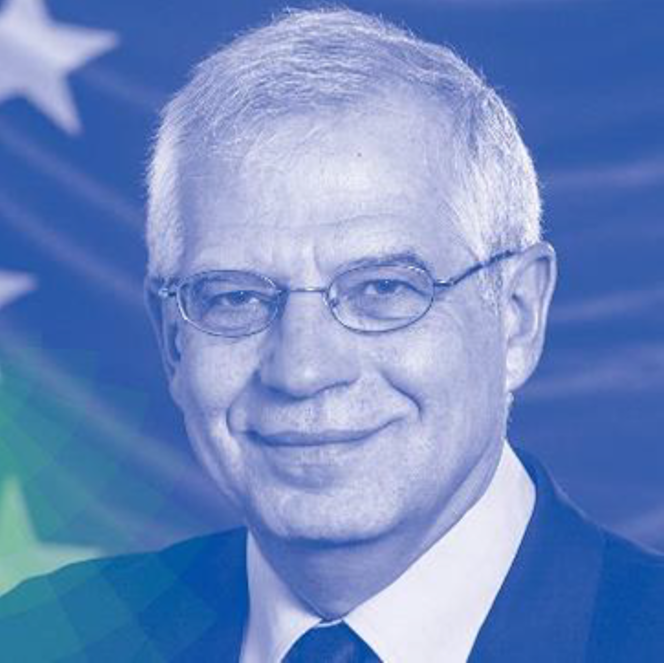
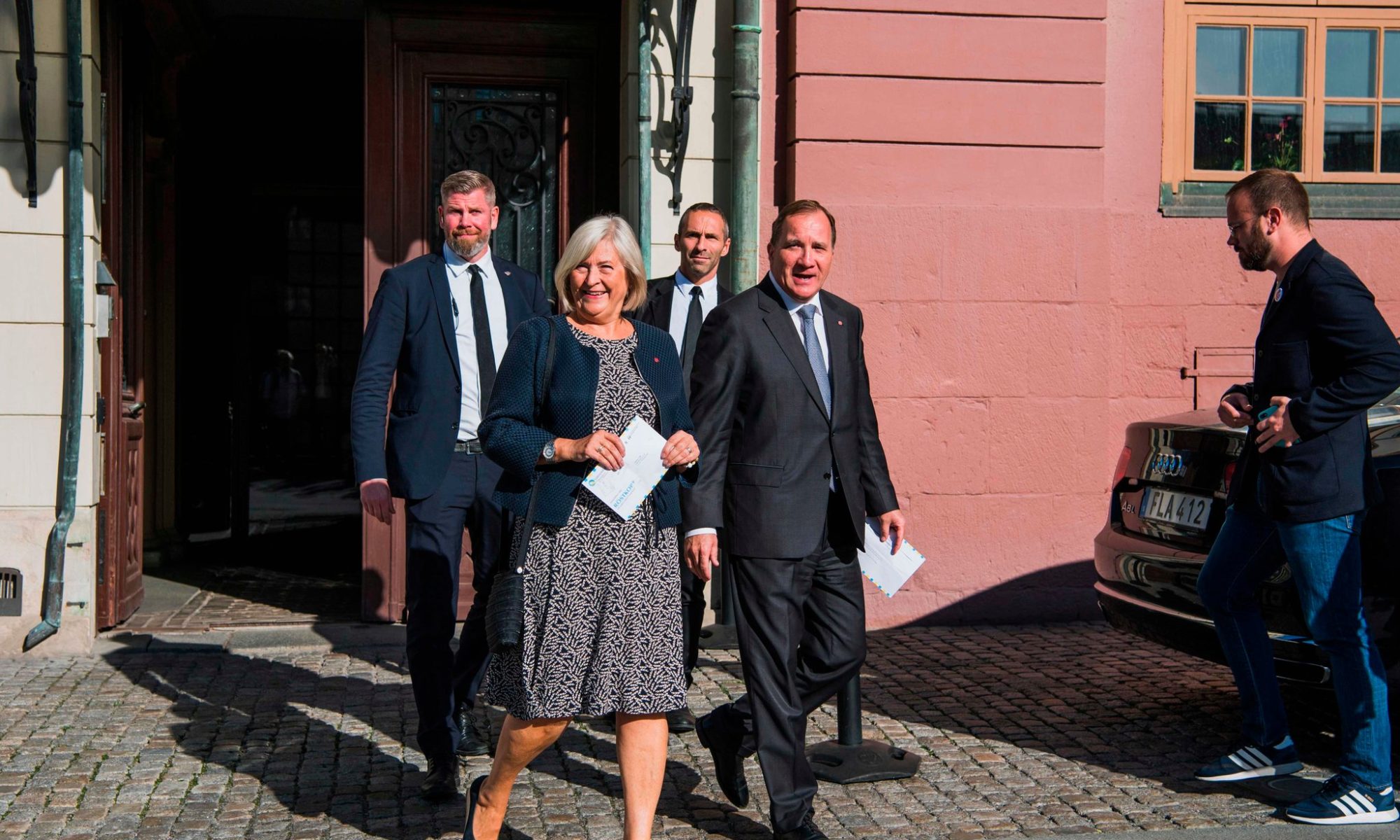
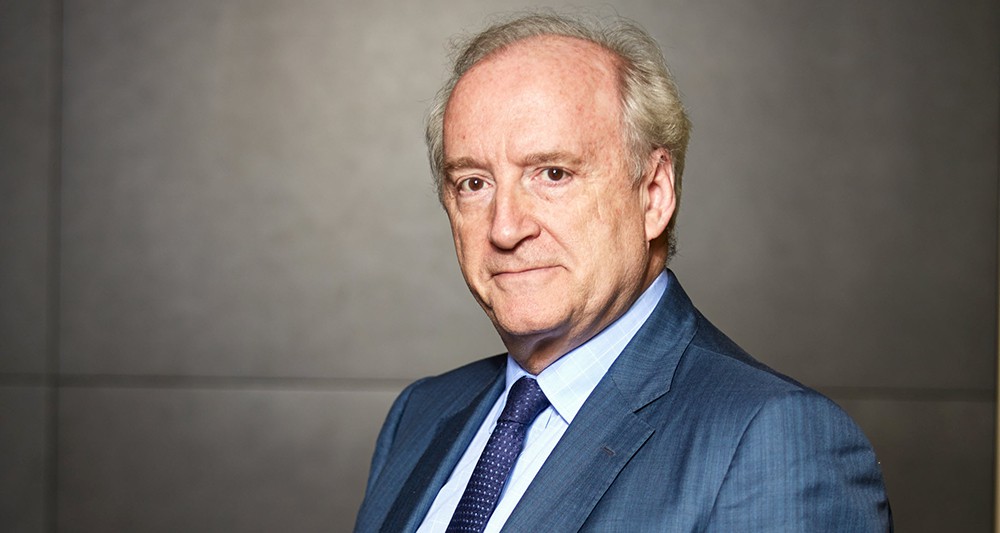
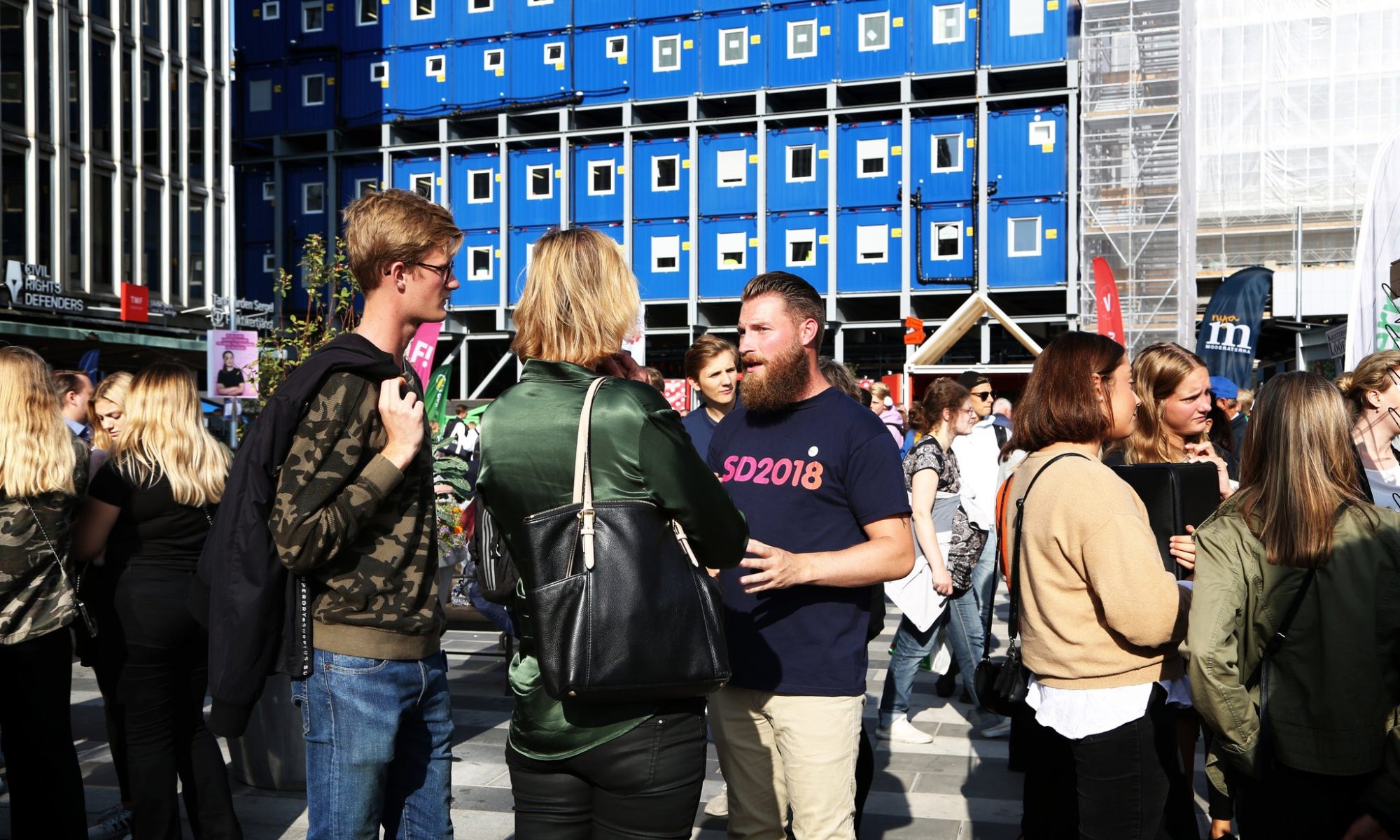
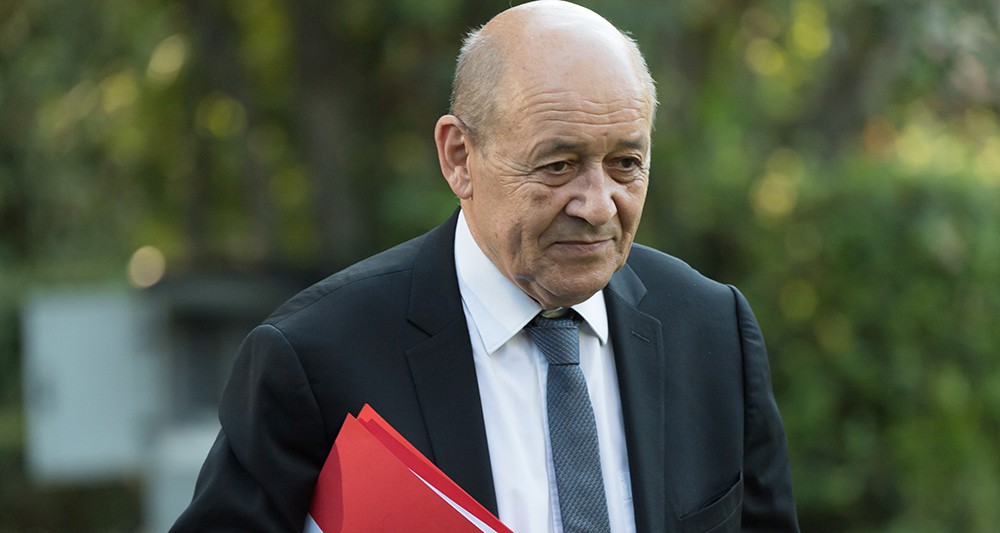
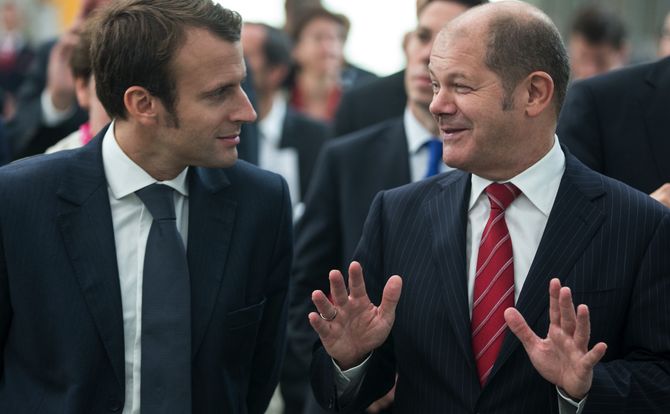
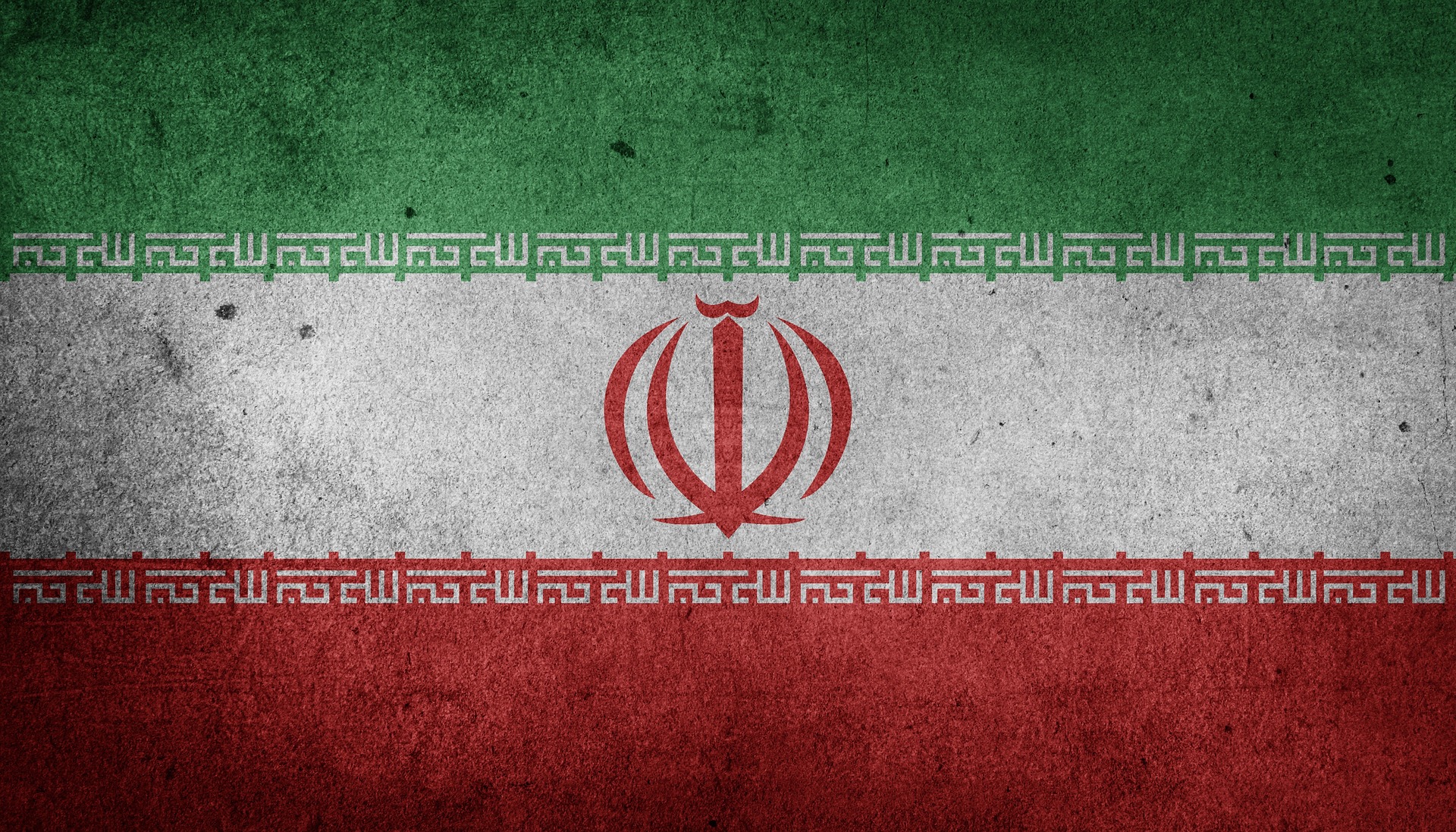
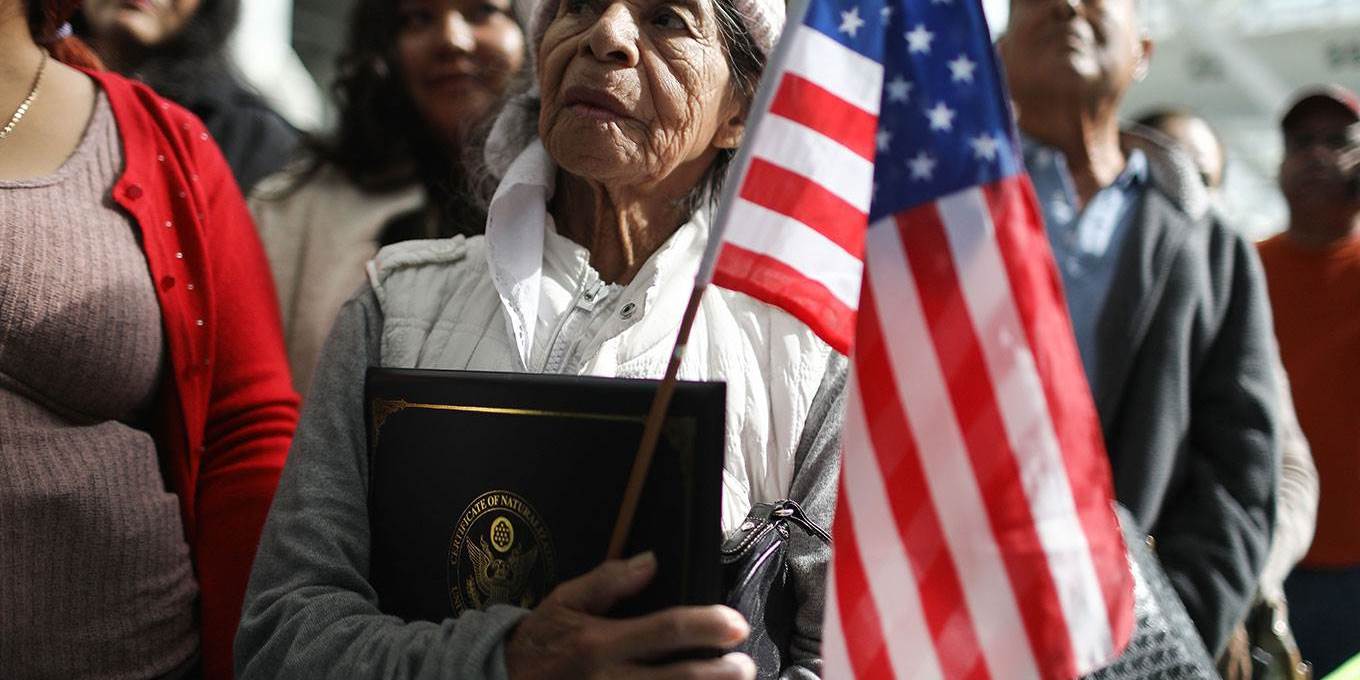
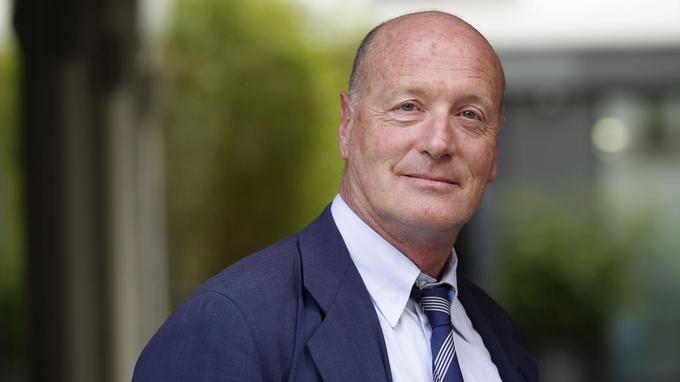
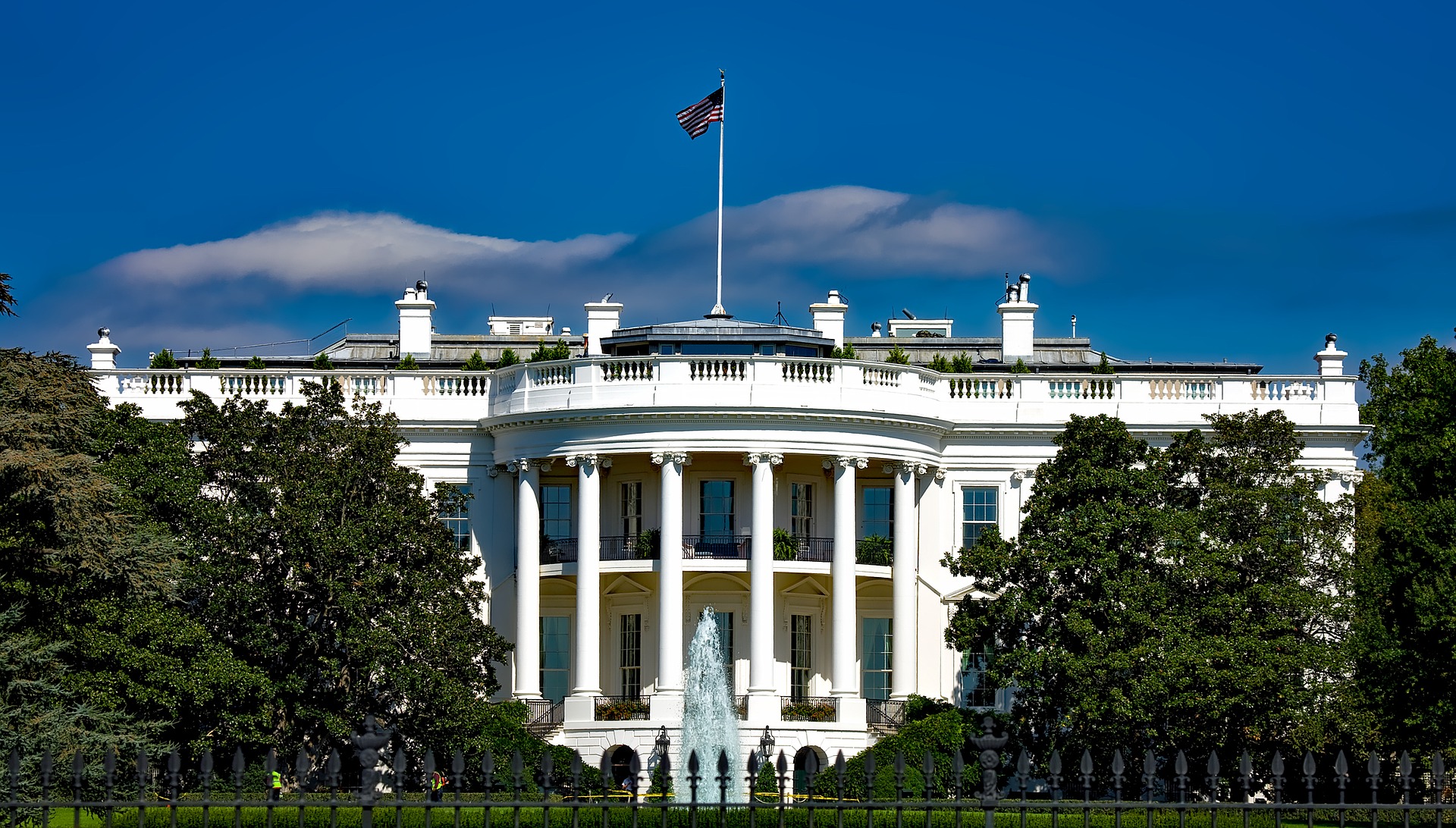
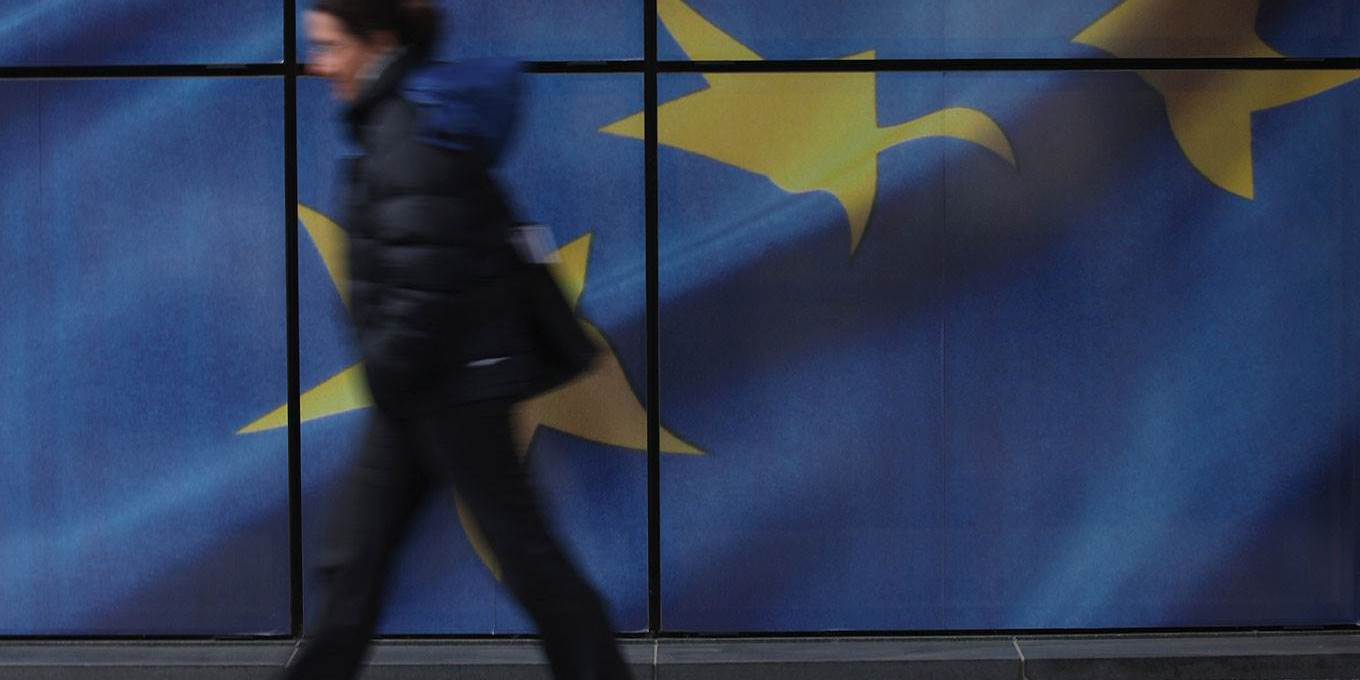
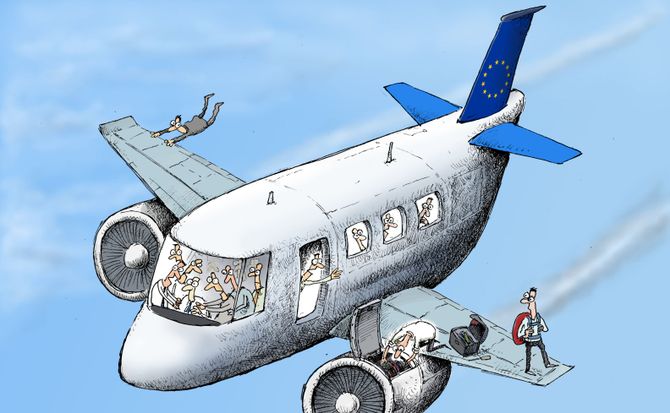
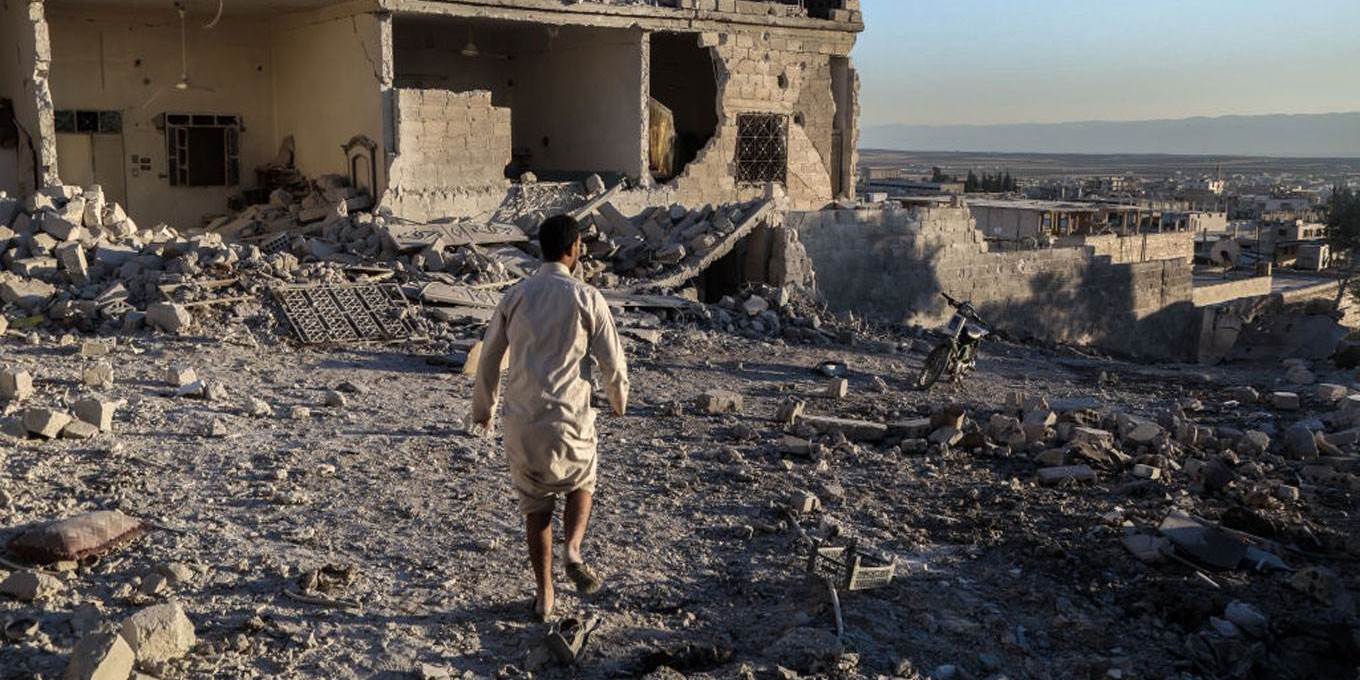
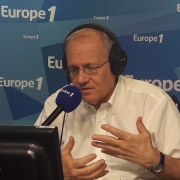
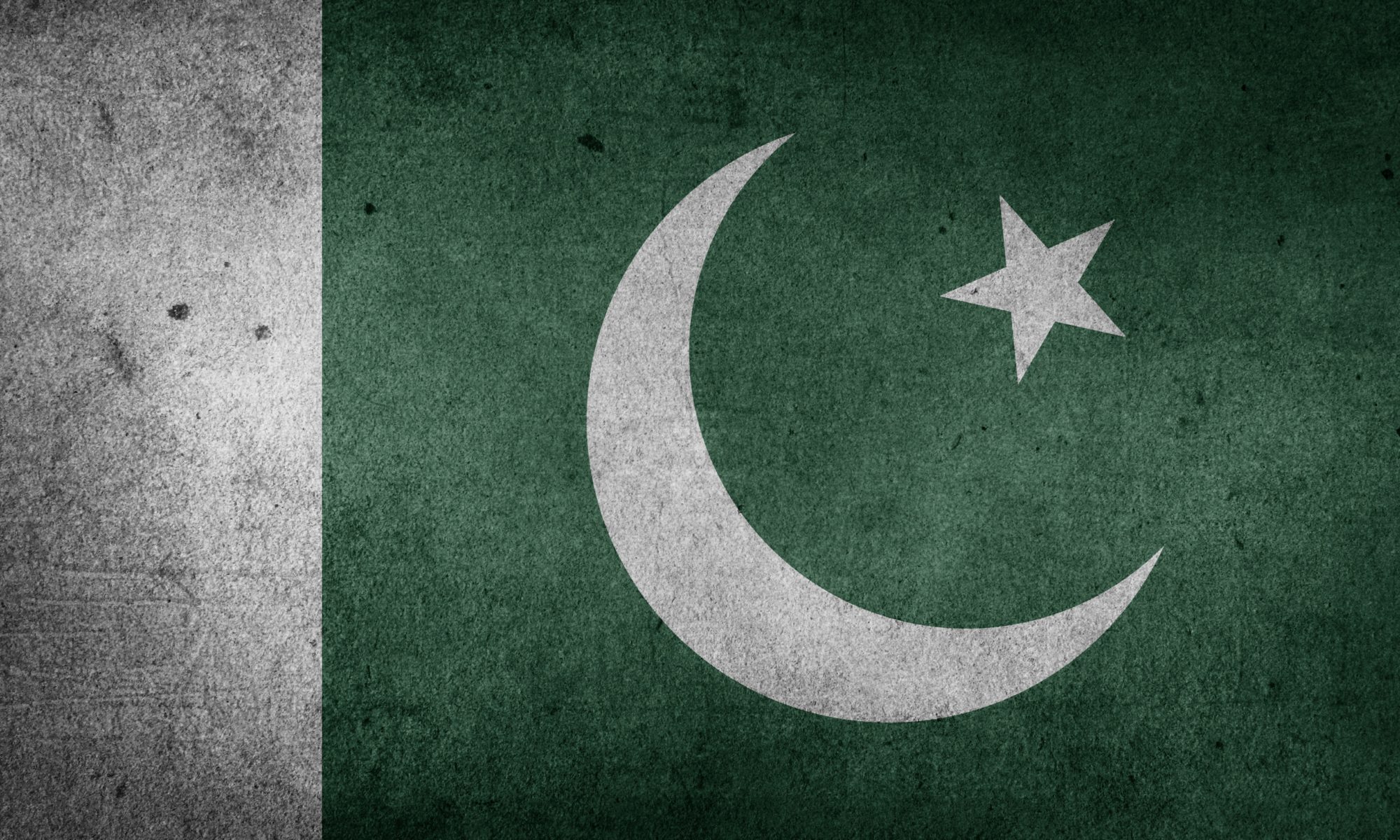


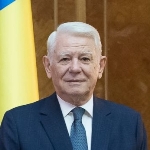
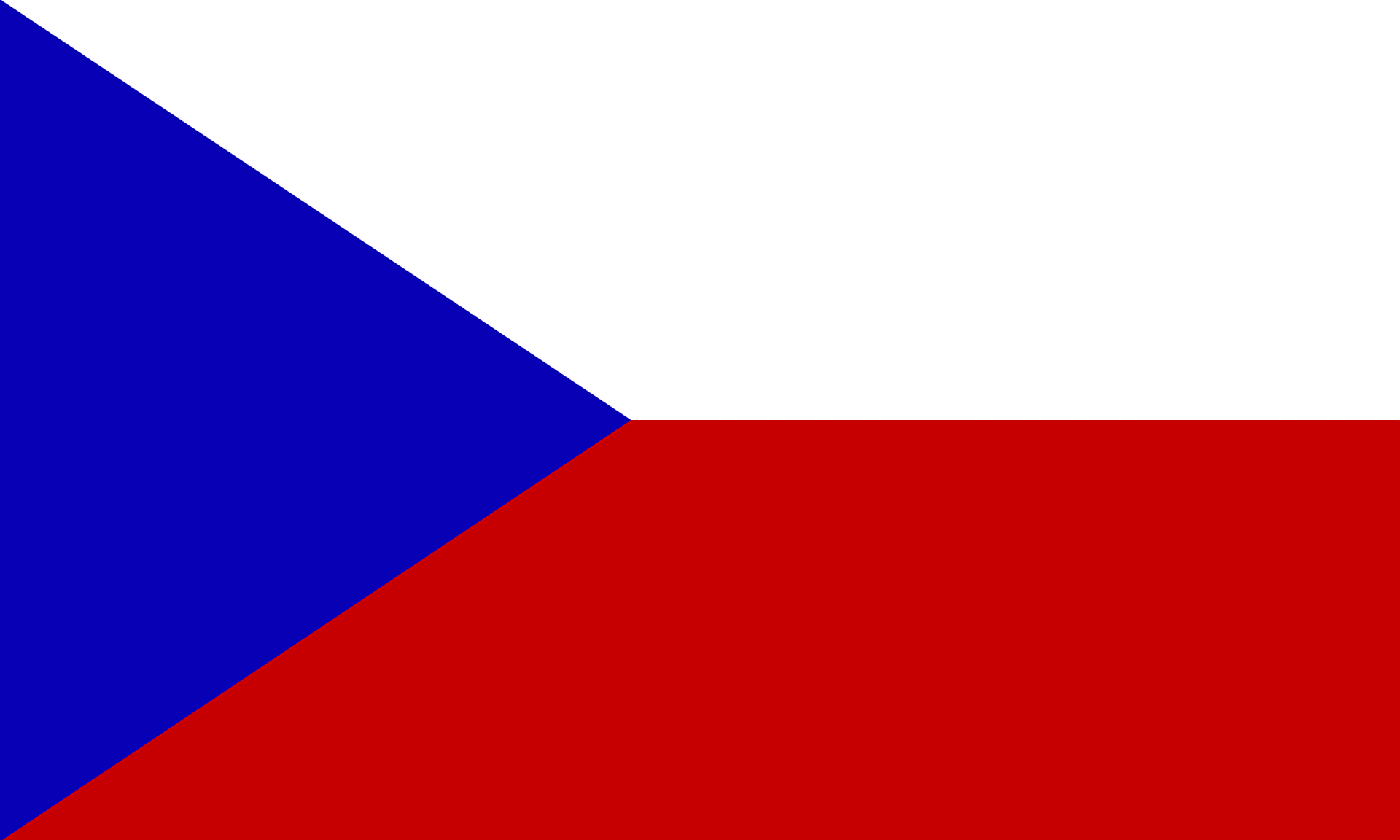
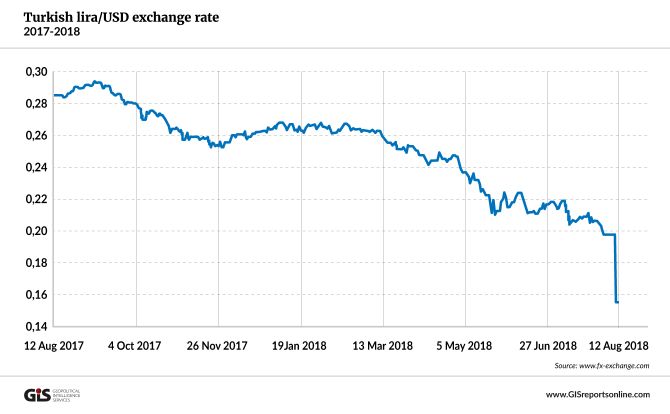
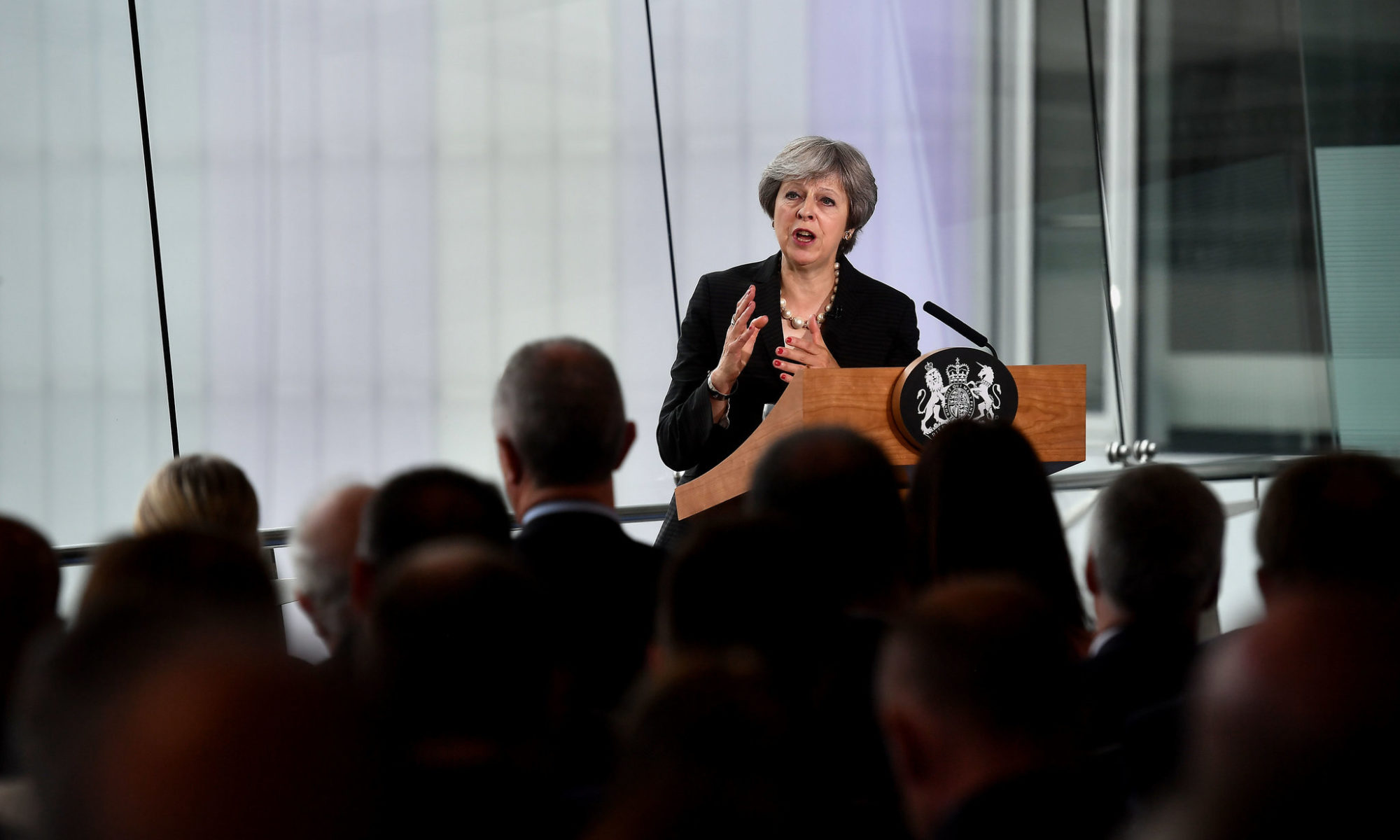
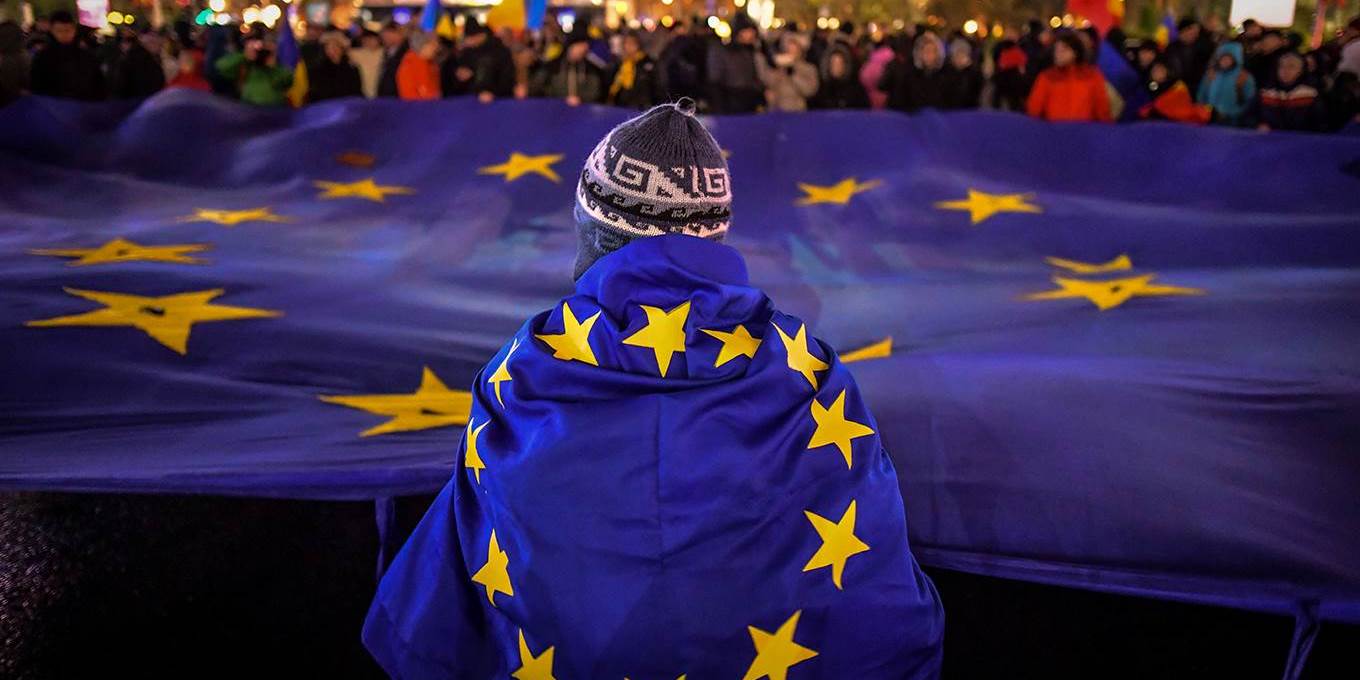
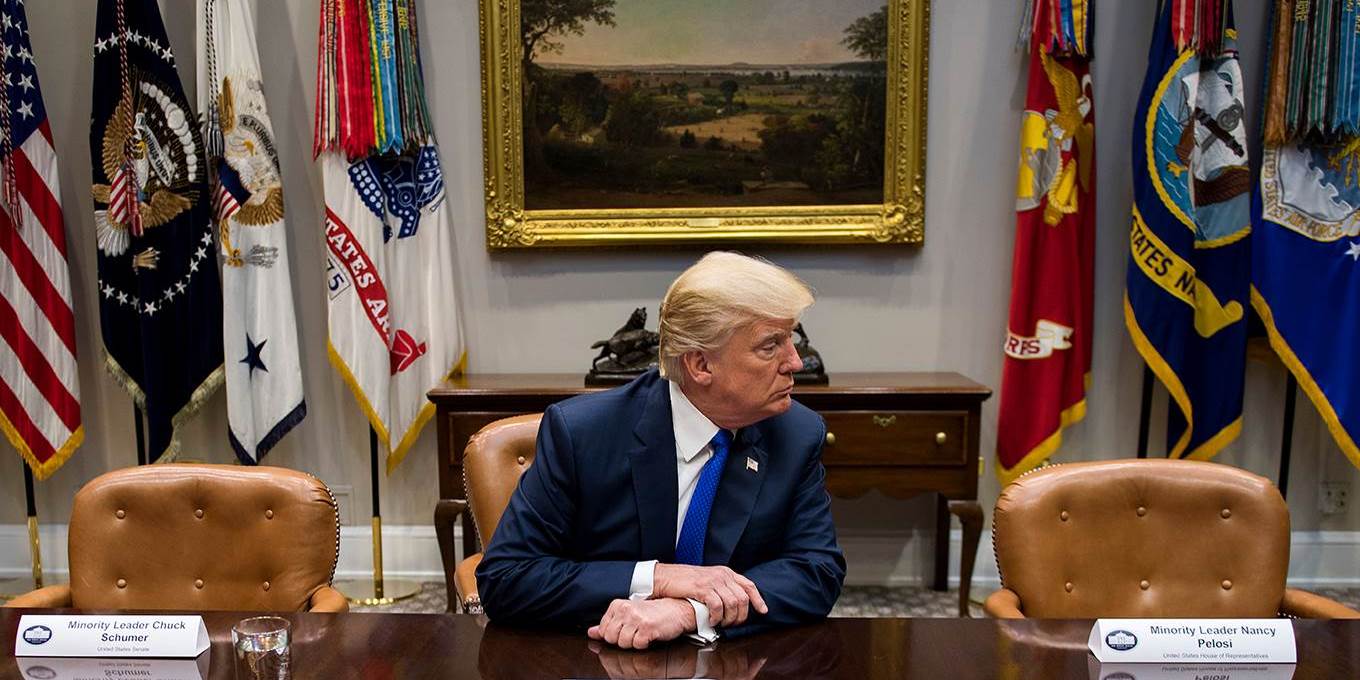
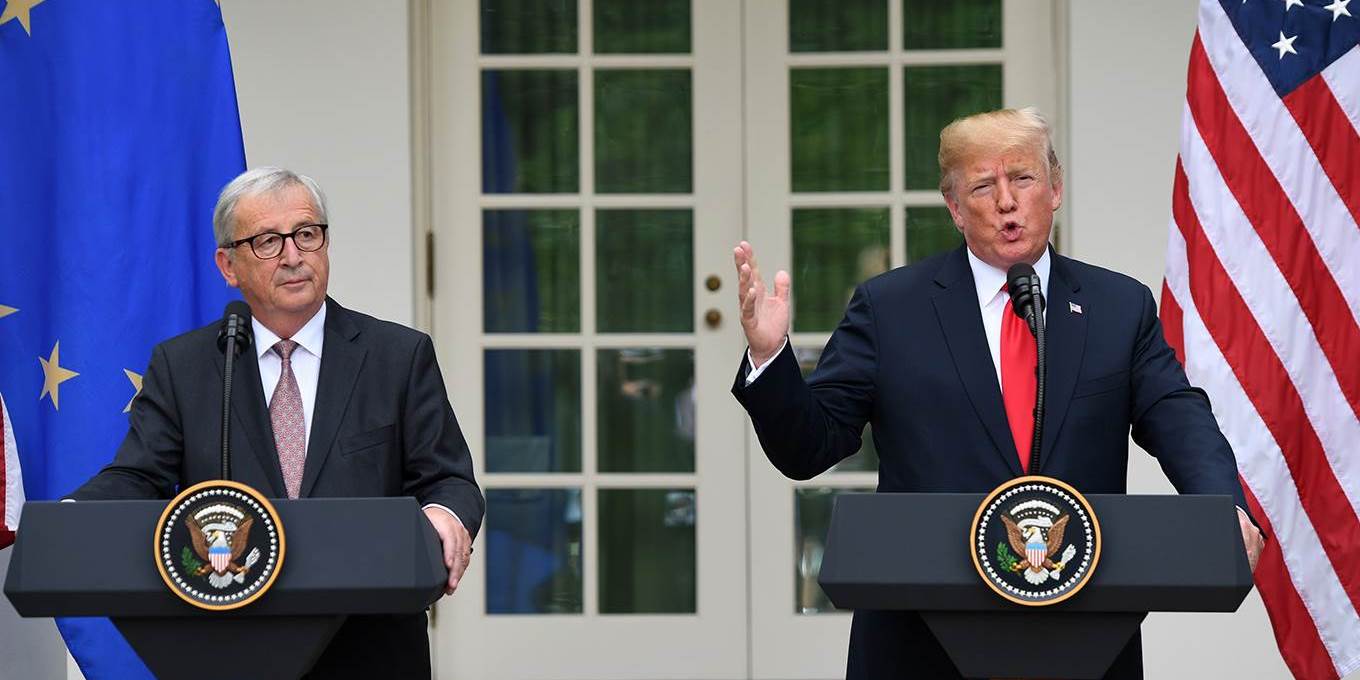
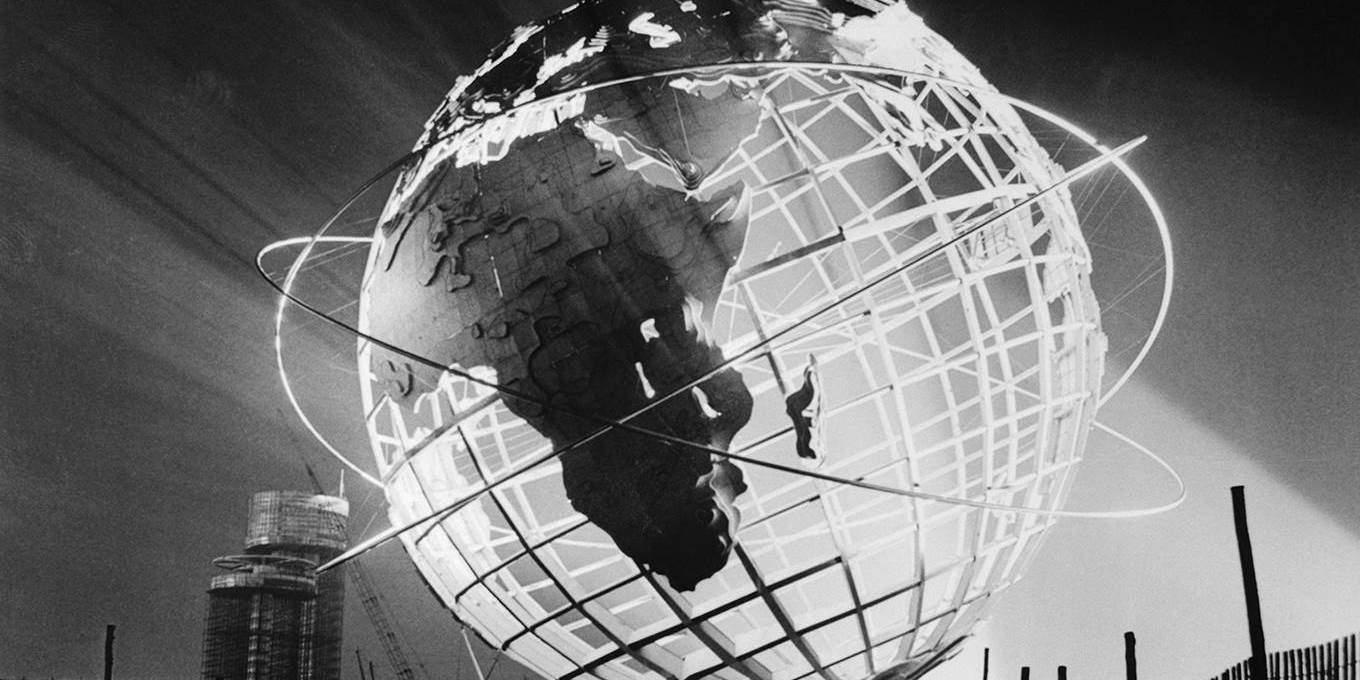
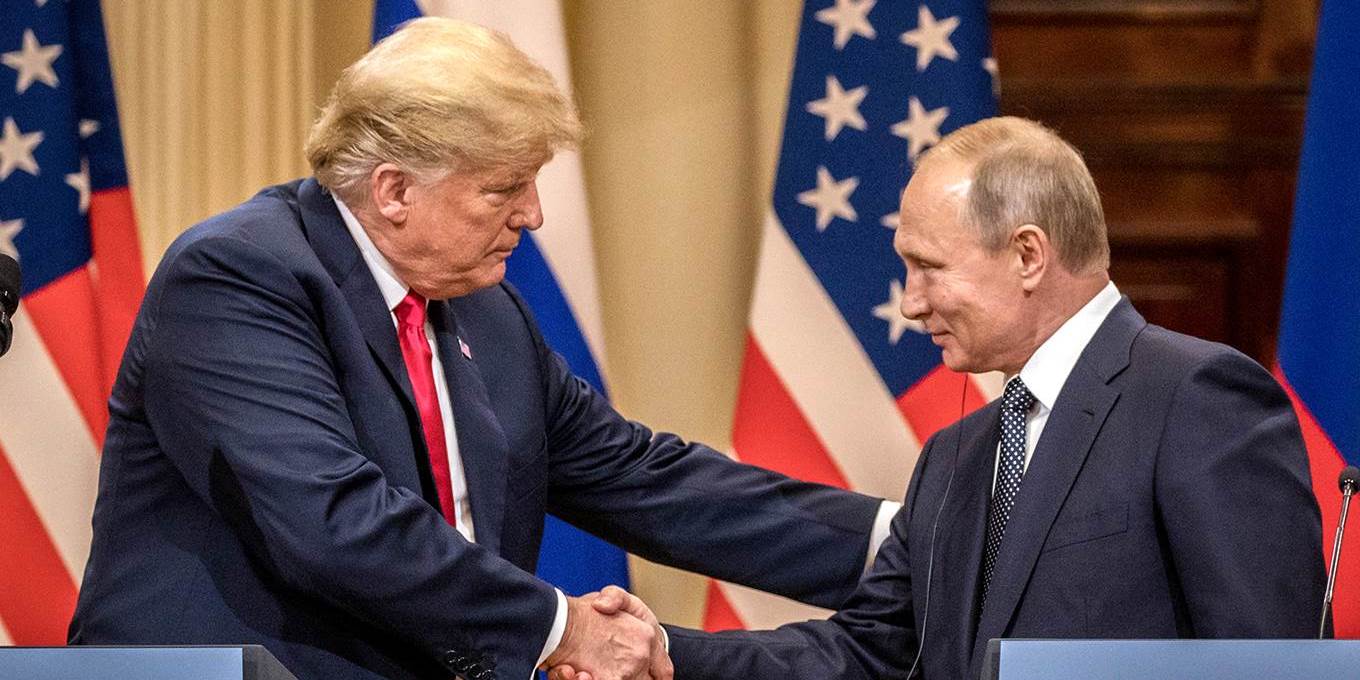
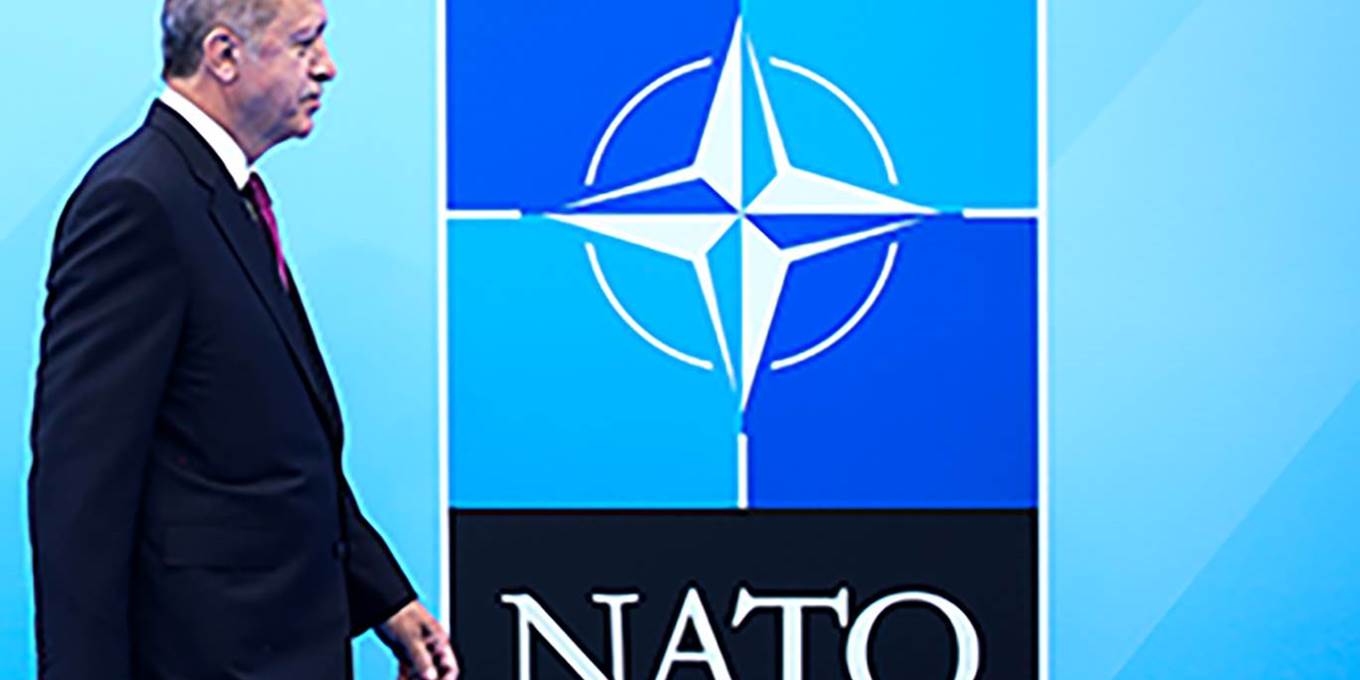
CAMBRIDGE – In July, I joined 43 other scholars of international relations in paying for a newspaper advertisement arguing that the US should preserve the current international order. The institutions that make up this order have contributed to “unprecedented levels of prosperity and the longest period in modern history without war between major powers. US leadership helped to create this system, and US leadership has long been critical for its success.”
But some serious scholars declined to sign, not only on grounds of the political futility of such public statements, but because they disagreed with the “bipartisan US commitment to ‘liberal hegemony’ and the fetishization of ‘US leadership’ on which it rests.” Critics correctly pointed out that the American order after 1945 was neither global nor always very liberal, while defenders replied that while the order was imperfect, it produced unparalleled economic growth and allowed the spread of democracy.
Such debates are unlikely to have much effect on President Donald Trump, who proclaimed in his inaugural address that, “From this day forward, it’s going to be only America First, America First […] We will seek friendship and goodwill with the nations of the world – but we do so with the understanding that it is the right of all nations to put their own interests first.”
But Trump went on to say that “we do not seek to impose our way of life on anyone, but rather to let it shine as an example.” And he did have a point. This approach can be called the “city on the hill” tradition, and it has a long pedigree. It is not pure isolationism, but it eschews activism in pursuit of values. American power is, instead, seen as resting on the “pillar of inspiration” rather than the “pillar of action.” For example, Secretary of State John Quincy Adams famously proclaimed on Independence Day in 1821 that the United States “does goes not abroad, in search of monsters to destroy. She is the well-wisher to the freedom and independence of all. She is the champion and vindicator only of her own.”
But the soft power of inspiration is not the only ethical tradition in American foreign policy. There is also an interventionist and crusading tradition. Adams’s speech was an effort to fend off political pressure from those who wanted the US to intervene on behalf of Greek patriots rebelling against Ottoman oppression.
That tradition prevailed in the twentieth century, when Woodrow Wilson sought a foreign policy that would make the world safe for democracy. At mid-century, John F. Kennedy called for Americans to make the world safe for diversity, but he also sent 17,000 American military advisers to Vietnam. Since the end of the Cold War, the US has been involved in seven wars and military interventions, and in 2006, after the invasion of Iraq, George W. Bush issued a National Security Strategy that was almost the opposite of Trump’s, promoting freedom and a global community of democracies.
Americans often see their country as exceptional, and most recently President Barack Obama described himself a strong proponent of American exceptionalism. There are sound analytical reasons to believe that if the largest economy does not take the lead in providing global public goods, such goods – from which all can benefit – will be under-produced. That is one source of American exceptionalism.
Economic size makes the US different, but analysts like Daniel H. Deudney of Johns Hopkins University and Jeffrey W. Meiser of the University of Portland argue that the core reason that the US is widely viewed as exceptional is its intensely liberal character and an ideological vision of a way of life centered on political, economic, and social freedom.
Of course, right from the start, America’s liberal ideology had internal contradictions, with slavery written into its constitution. And Americans have always differed over how to promote liberal values in foreign policy. According to Deudney and Meiser,
“For some Americans, particularly recent neo-conservatives, intoxicated with power and righteousness, American exceptionalism is a green light, a legitimizing rationale, and an all-purpose excuse for ignoring international law and world public opinion, for invading other countries and imposing governments […] For others, American exceptionalism is code for the liberal internationalist aspiration for a world made free and peaceful not through the assertion of unchecked American power and influence, but rather through the erection of a system of international law and organization that protects domestic liberty by moderating international anarchy.”
Protected by two oceans, and bordered by weaker neighbors, the US largely focused on westward expansion in the nineteenth century and tried to avoid entanglement in the struggle for power then taking place in Europe. Otherwise, warned Adams, “The frontlet upon her brows would no longer beam with the ineffable splendor of freedom and independence; but in its stead would soon be substituted an imperial diadem, flashing in false and tarnished lustre the murky radiance of dominion and power.”
By the beginning of the twentieth century, however, America had replaced Britain as the world’s largest economy, and its intervention in World War I tipped the balance of power. And yet by the 1930s, many Americans had come to believe that intervention in Europe had been a mistake and embraced isolationism. After World War II, Presidents Franklin Roosevelt and Harry Truman – and others around the world – drew the lesson that the US could not afford to turn inward again.
Together, they created a system of security alliances, multilateral institutions, and relatively open economic policies that comprise Pax Americana or the “liberal international order.” Whatever one calls these arrangements, for 70 years it has been US foreign policy to defend them. Today, they are being called into question by the rise of powers such as China and a new wave of populism within the world’s democracies, which Trump tapped in 2016, when he became the first candidate of a major US political party to call into question the post-1945 international order.
The question for a post-Trump president is whether the US can successfully address both aspects of its exceptional role. Can the next president promote democratic values without military intervention and crusades, and at the same time take a non-hegemonic lead in establishing and maintaining the institutions needed for a world of interdependence?